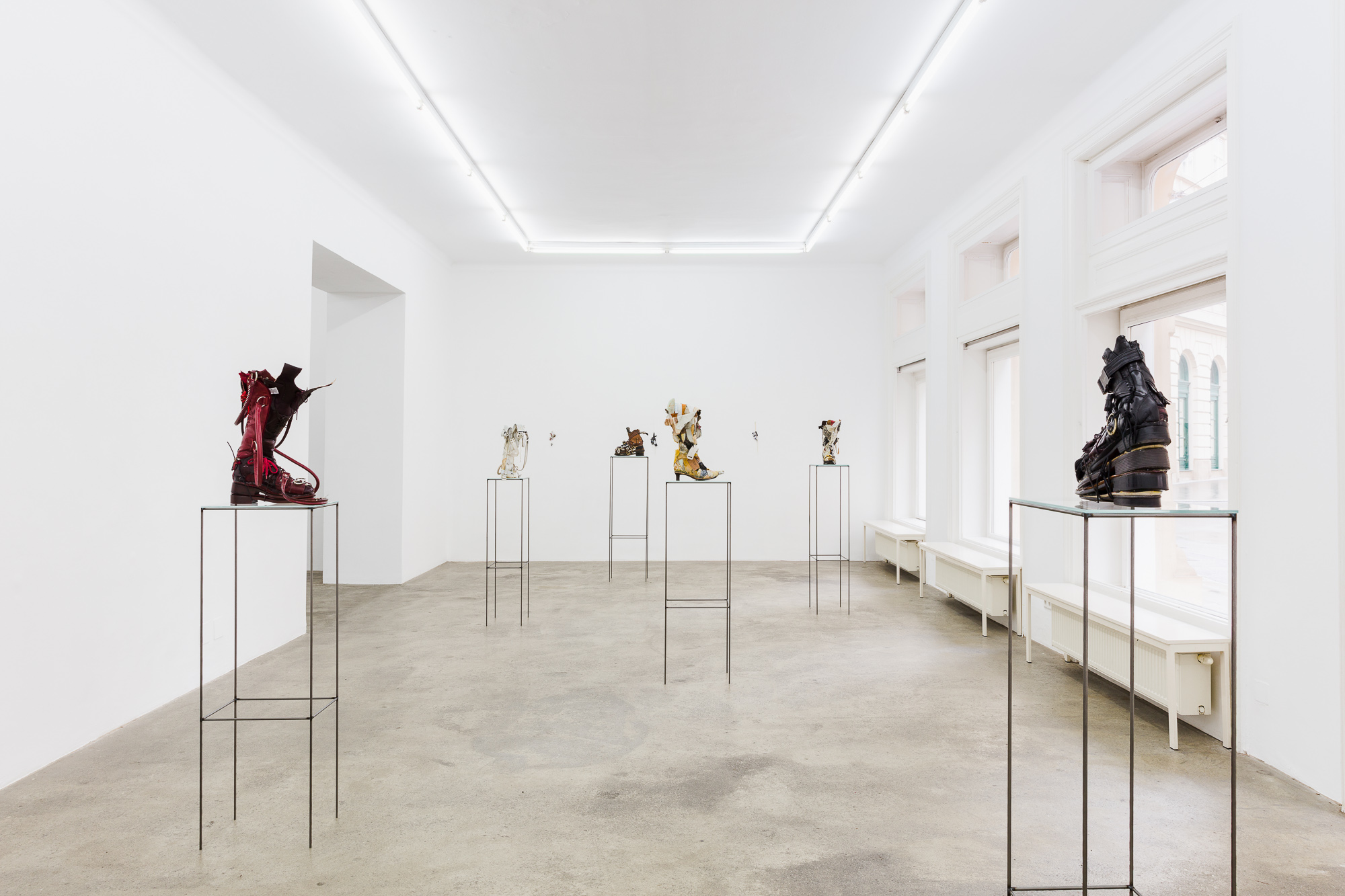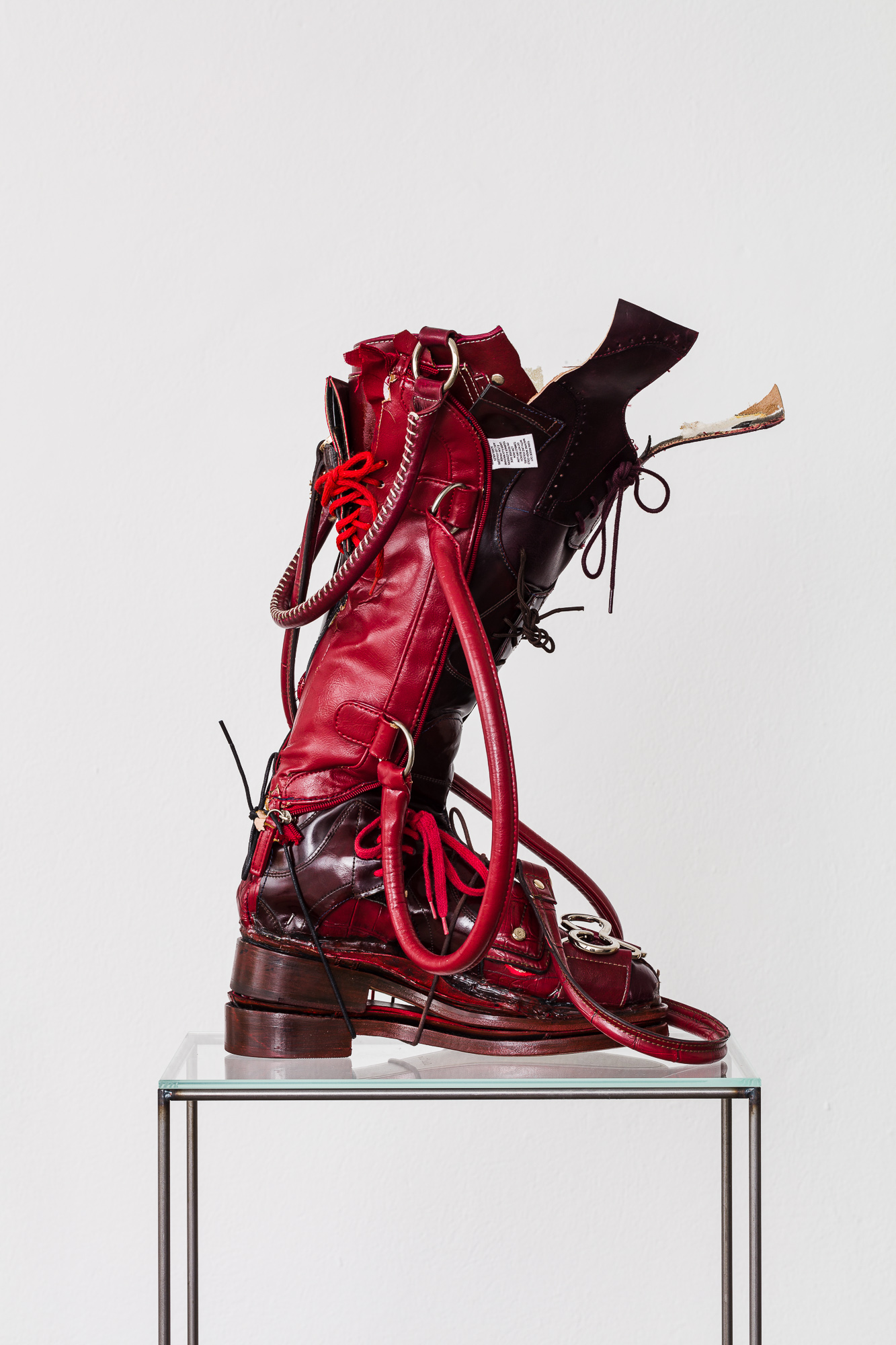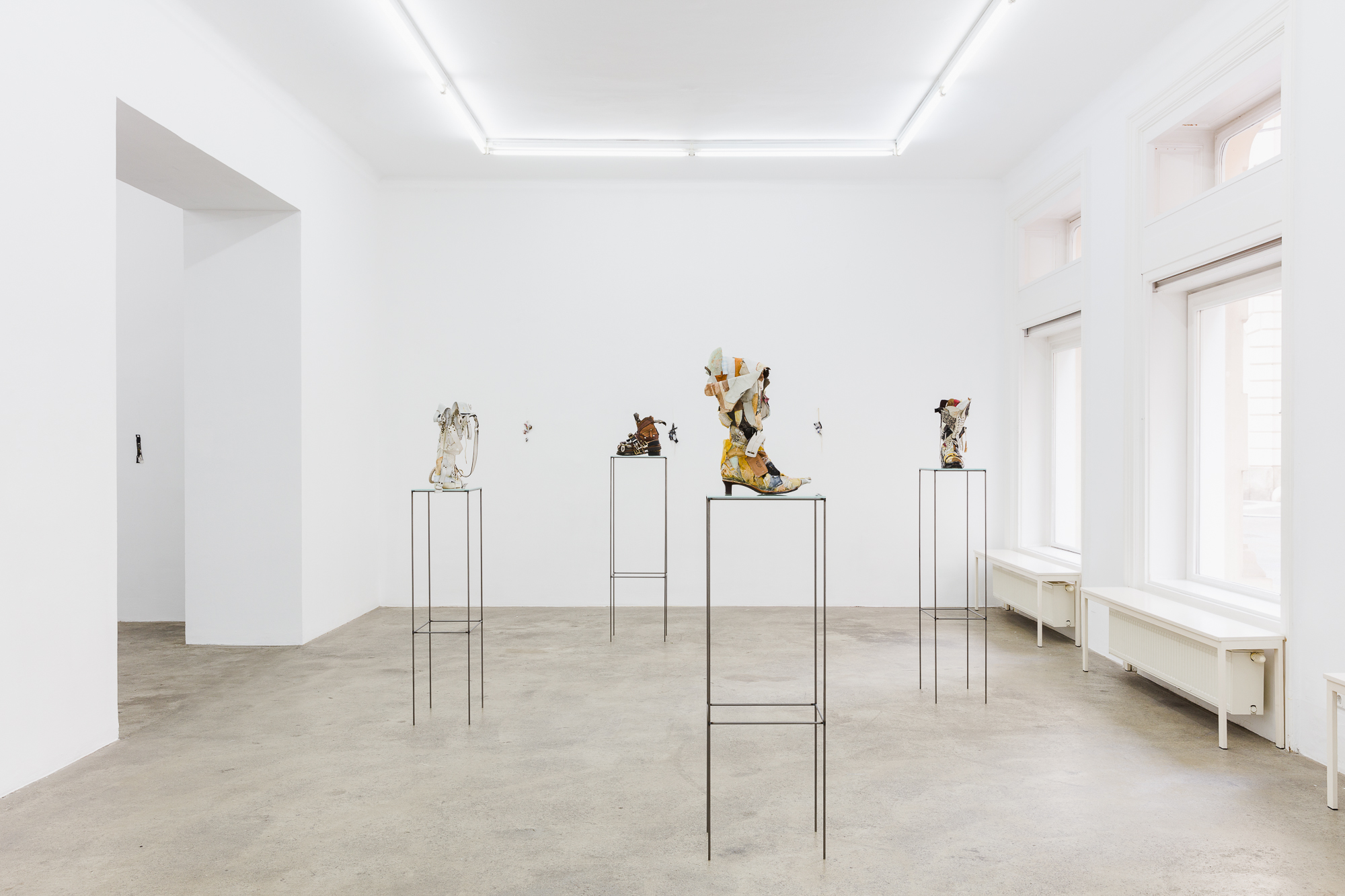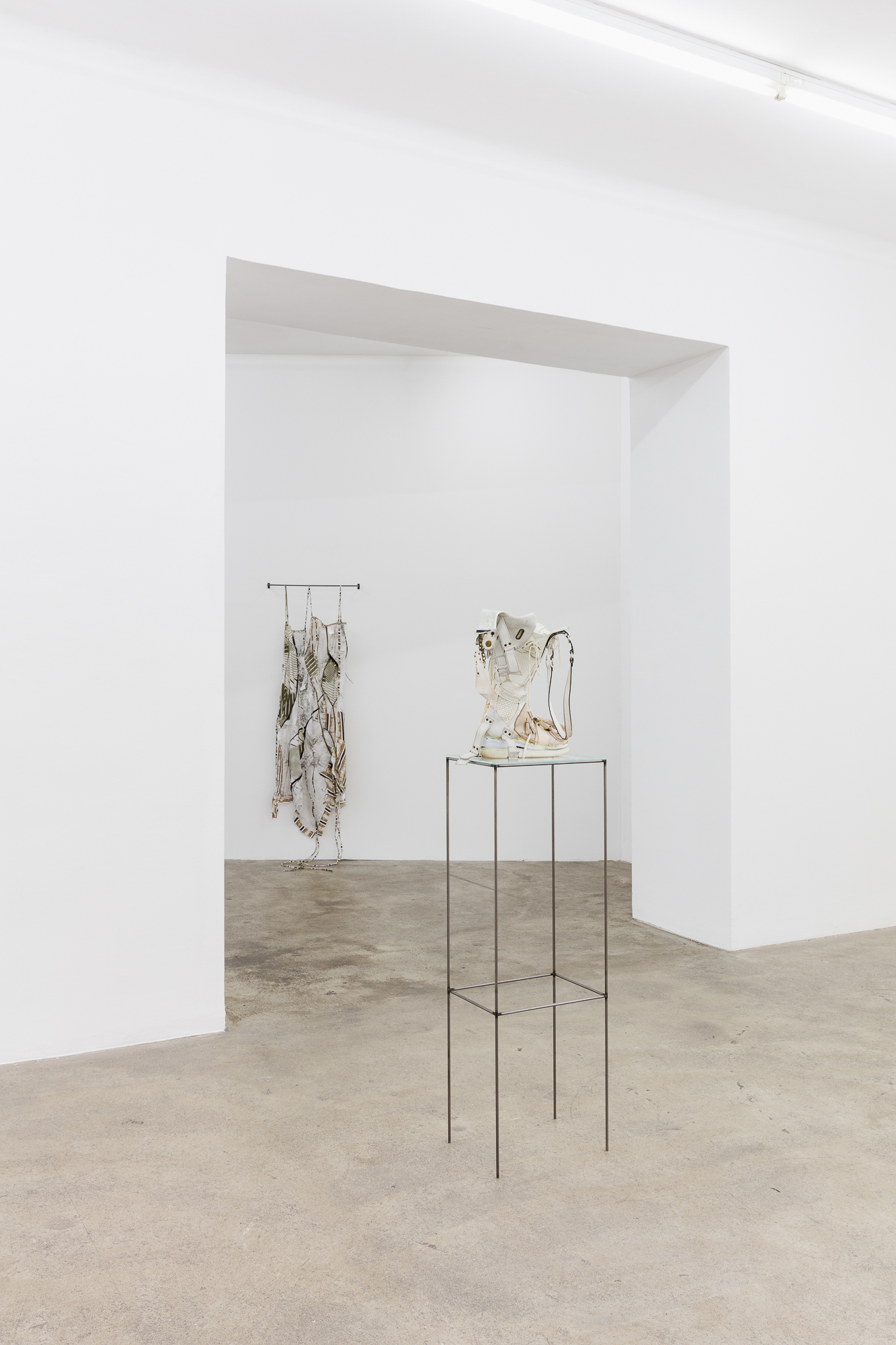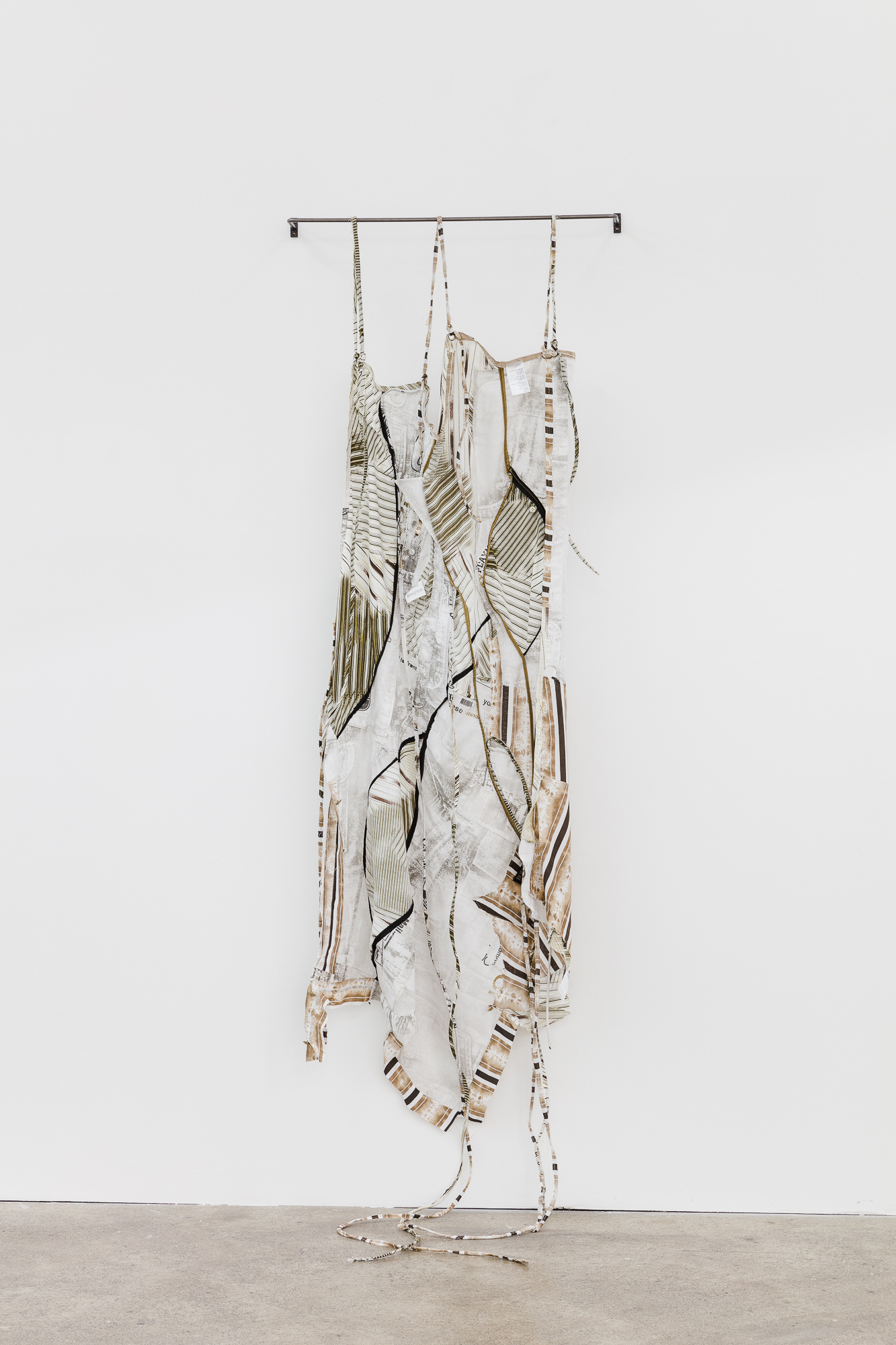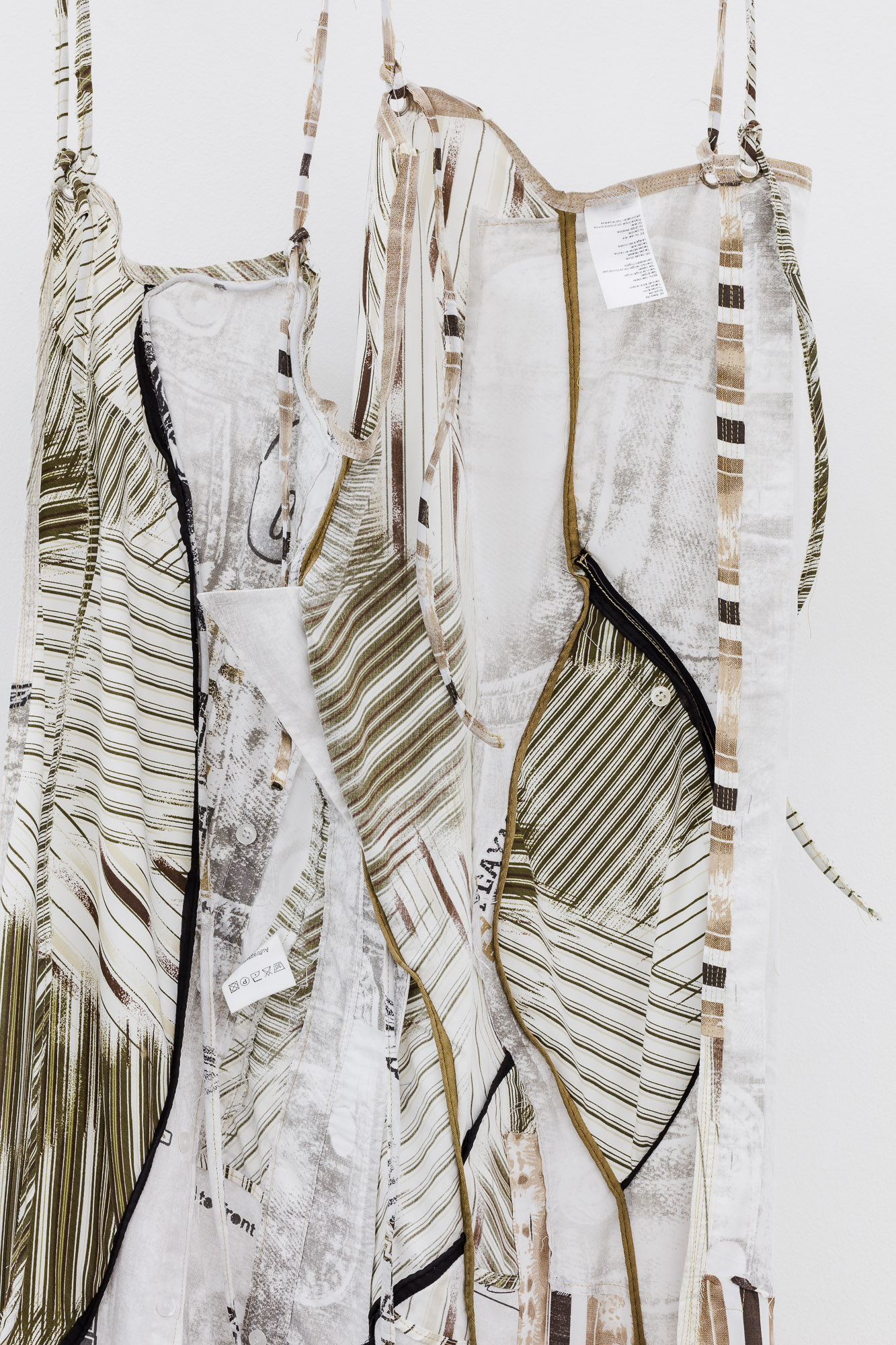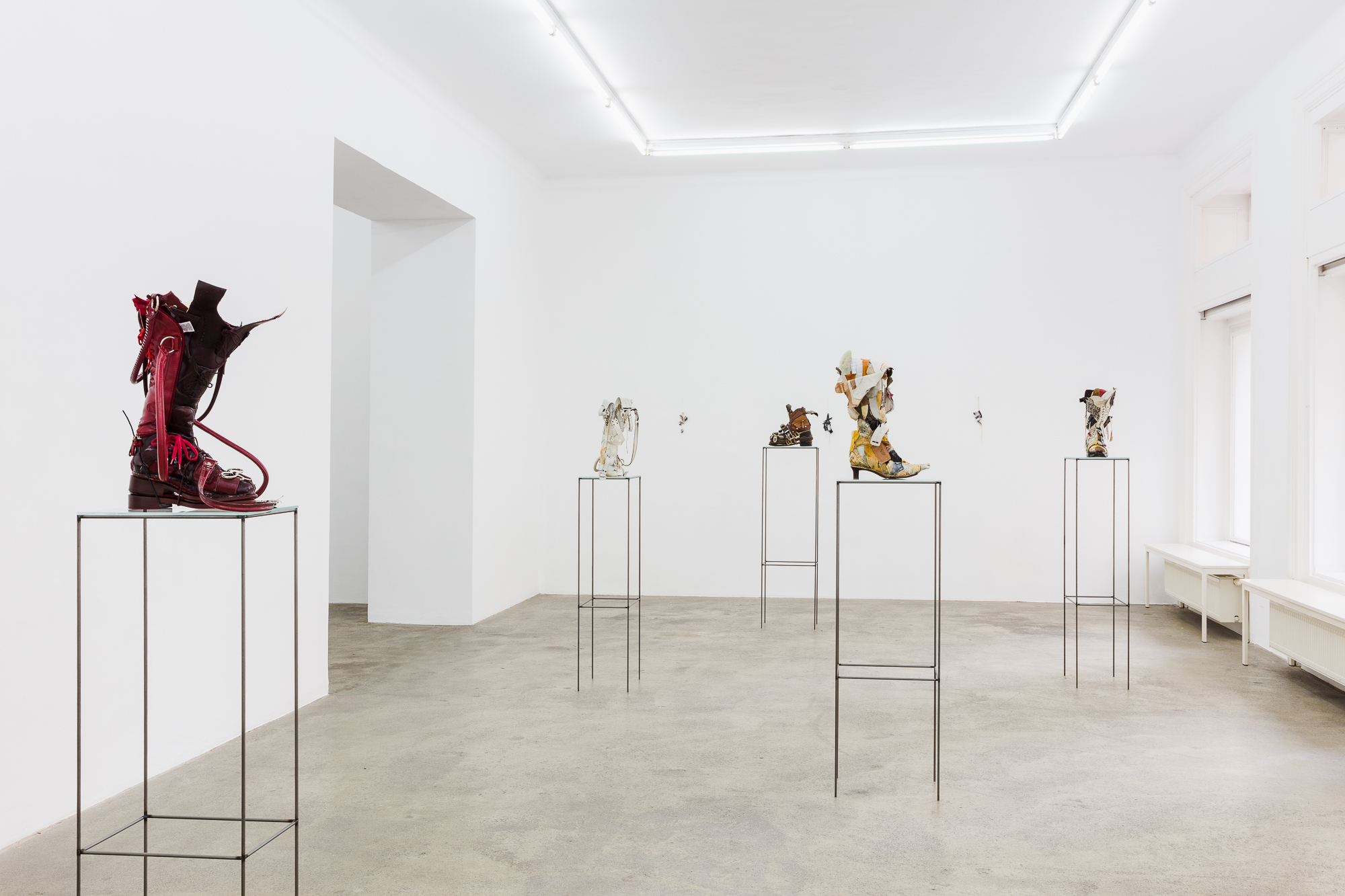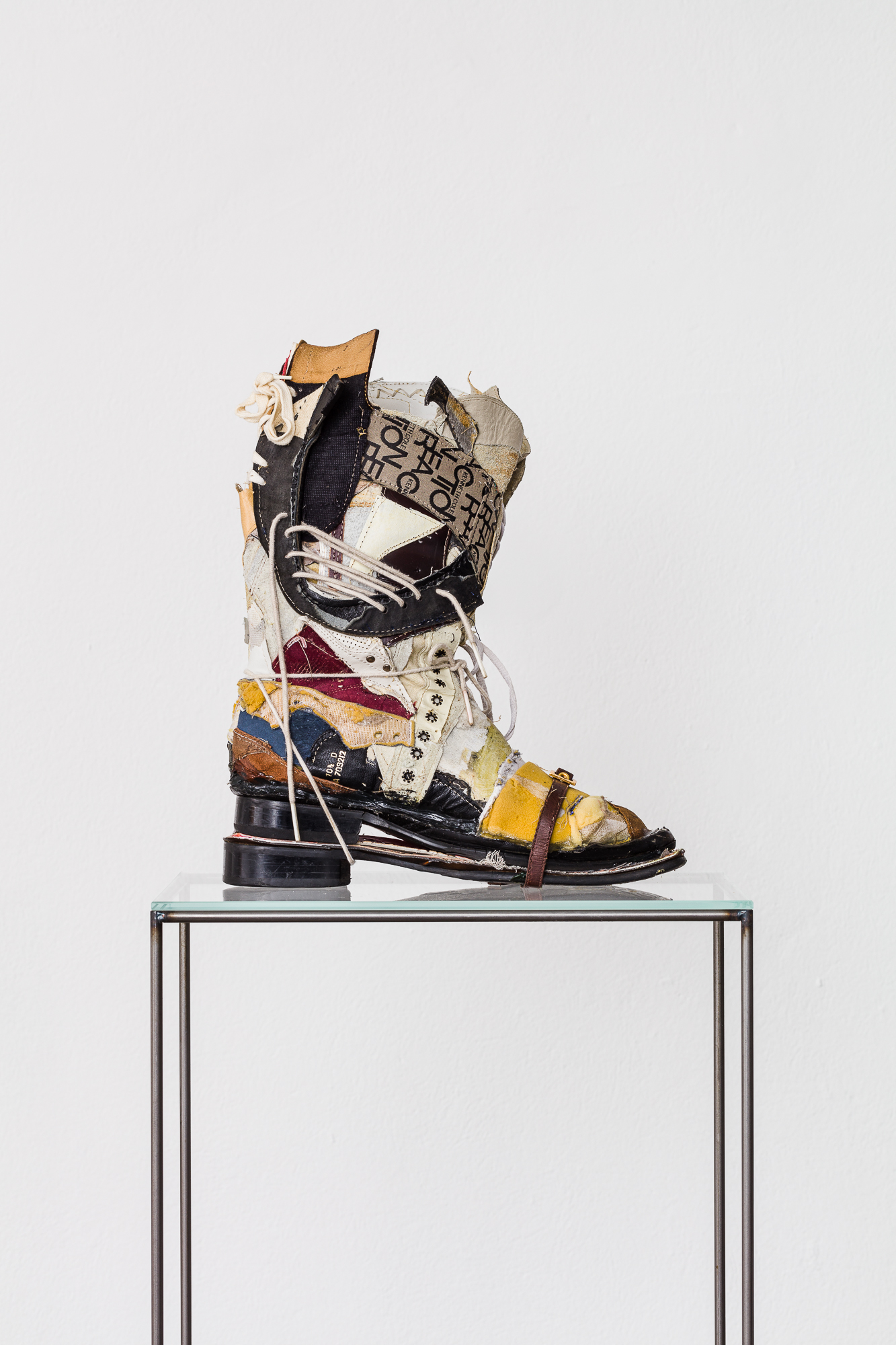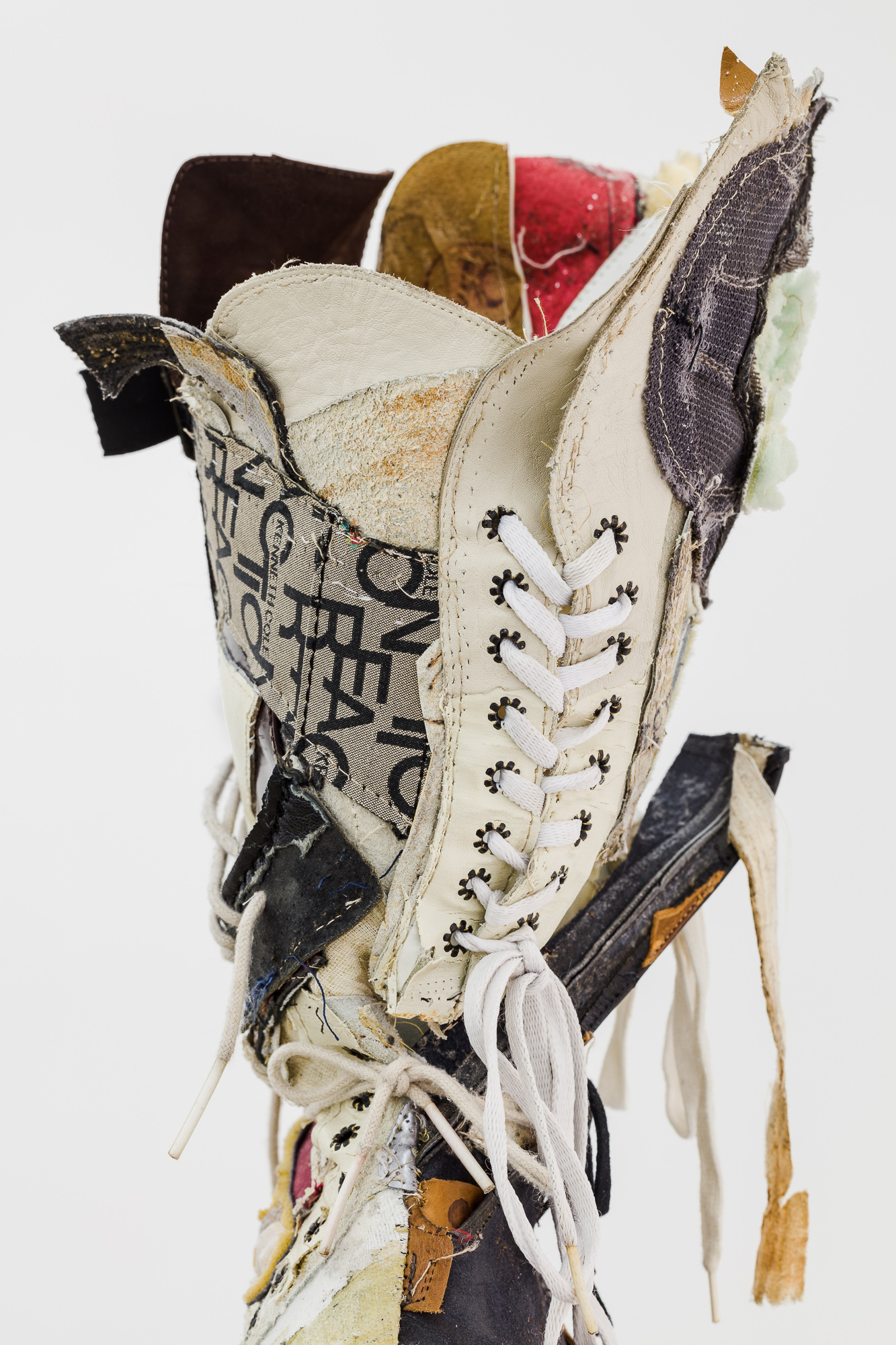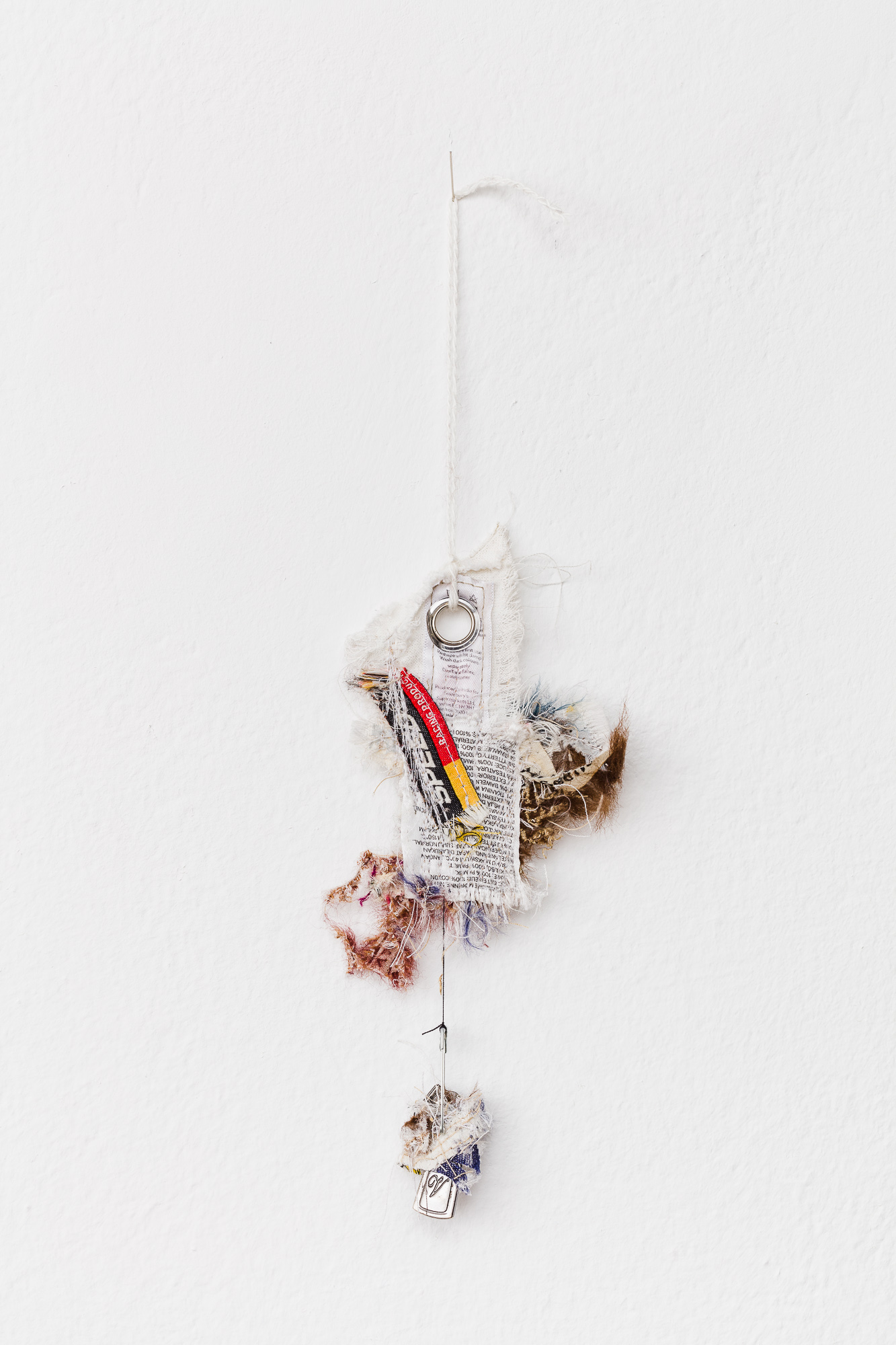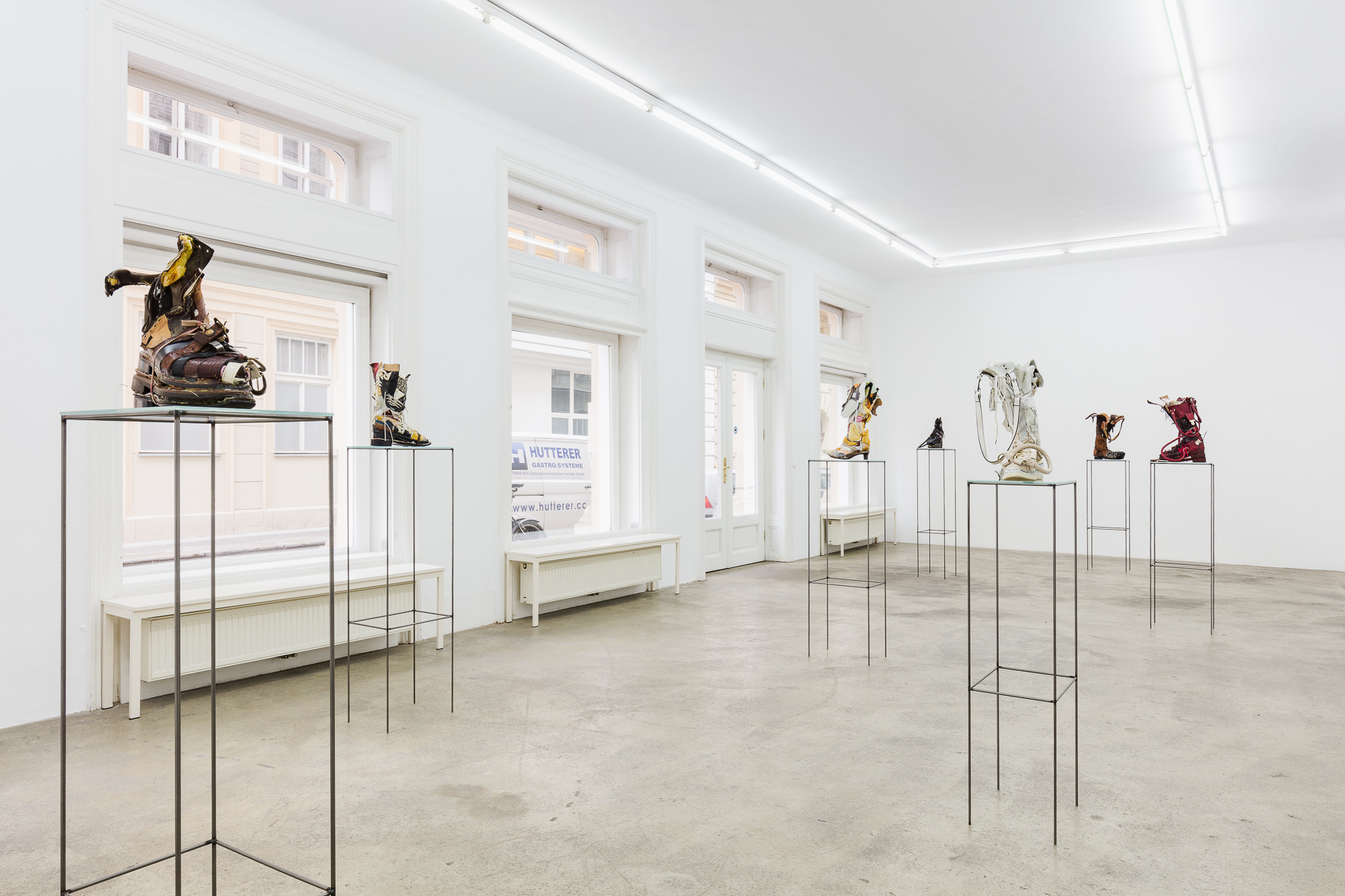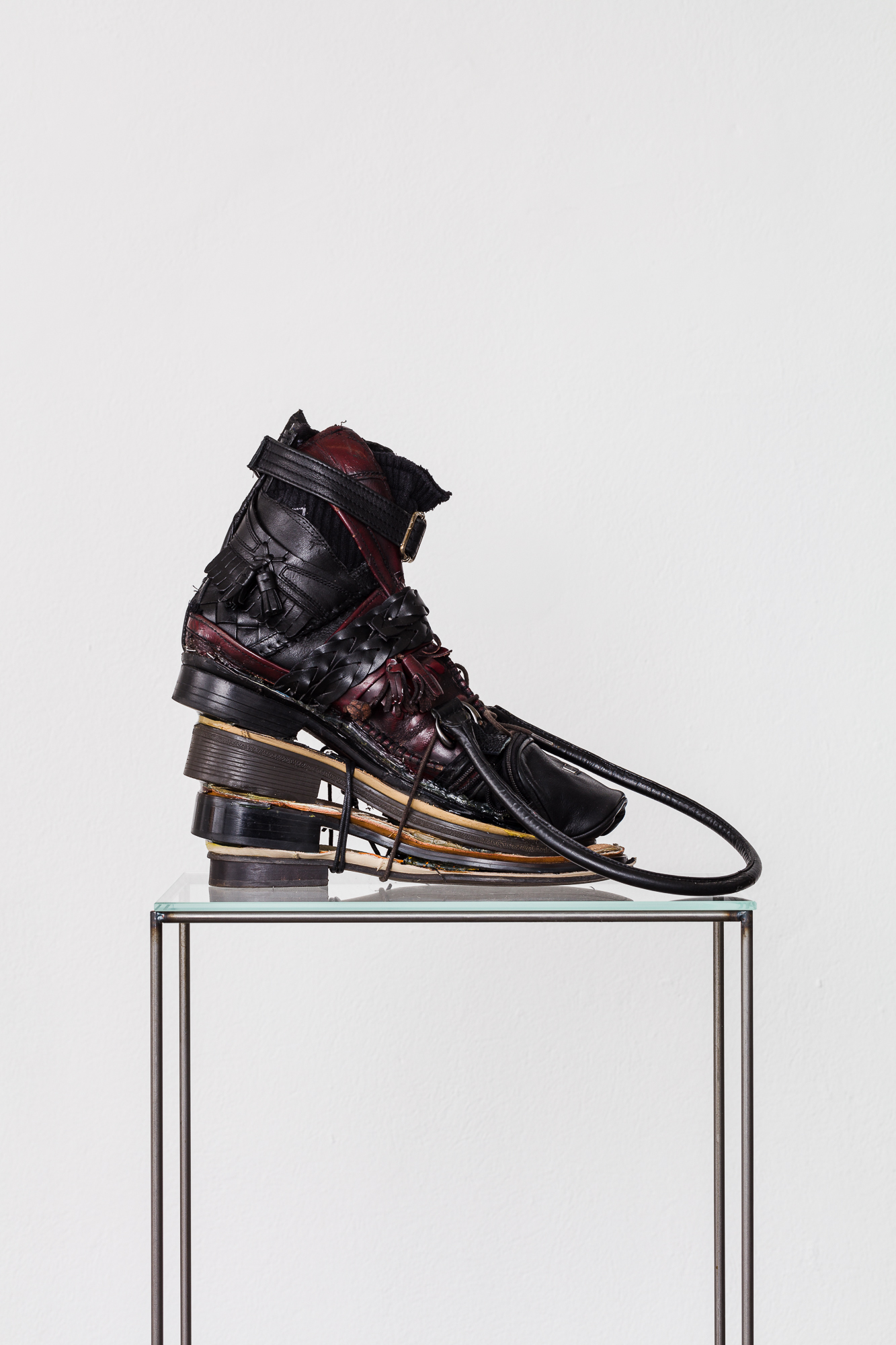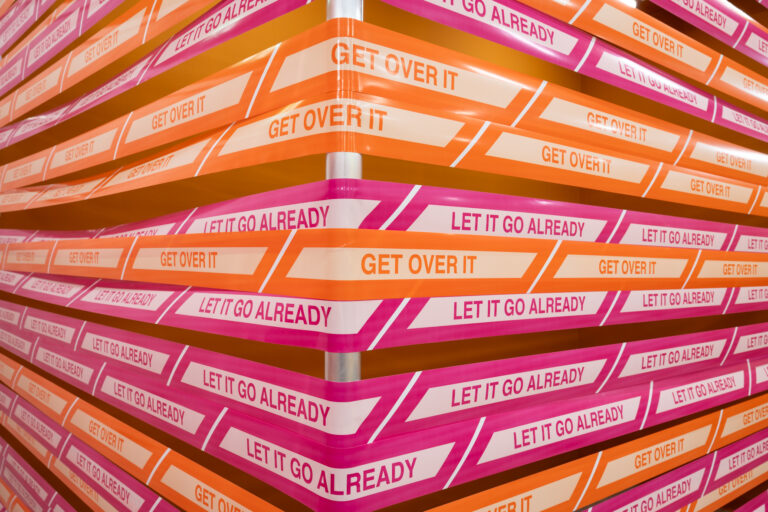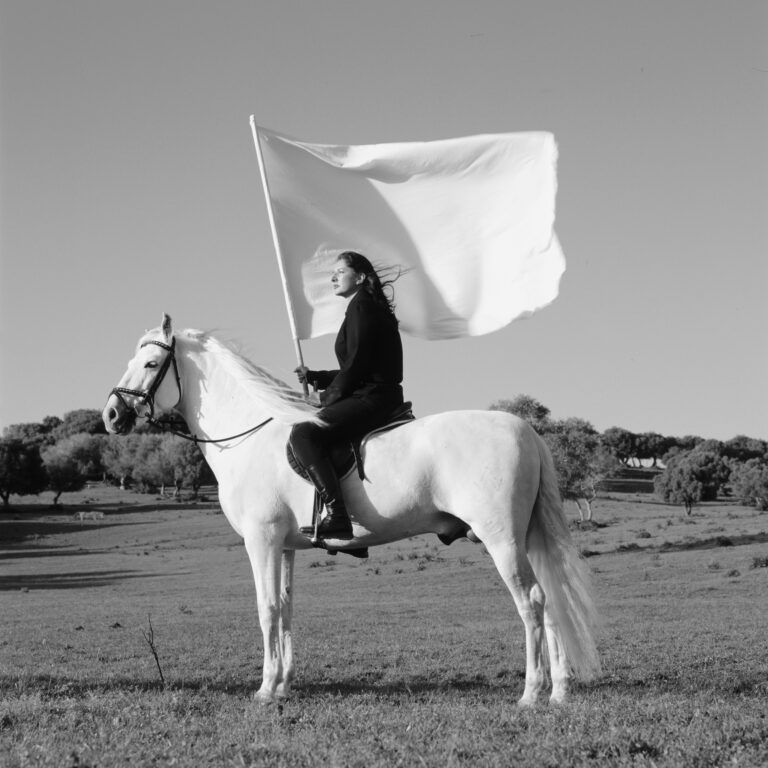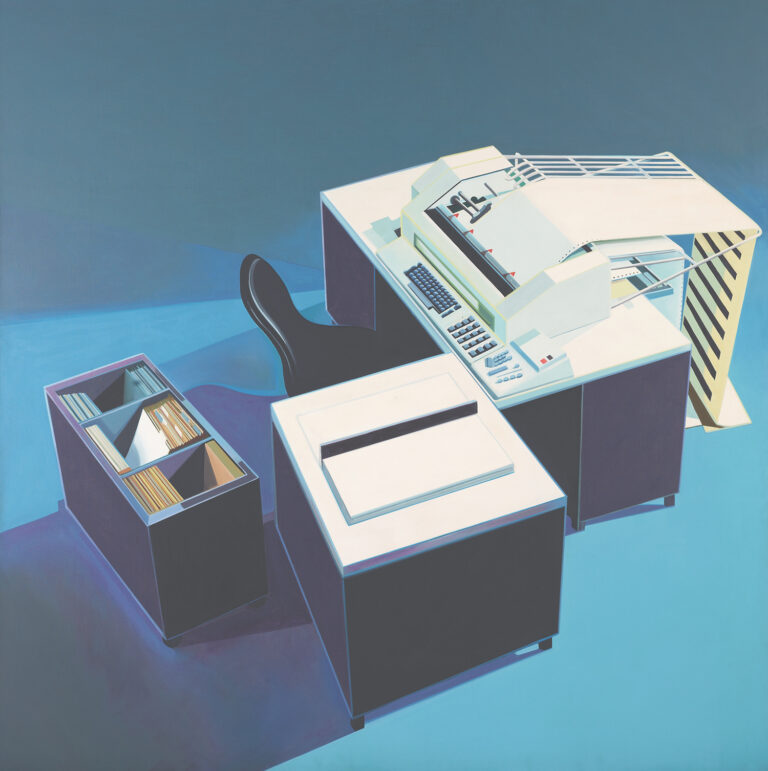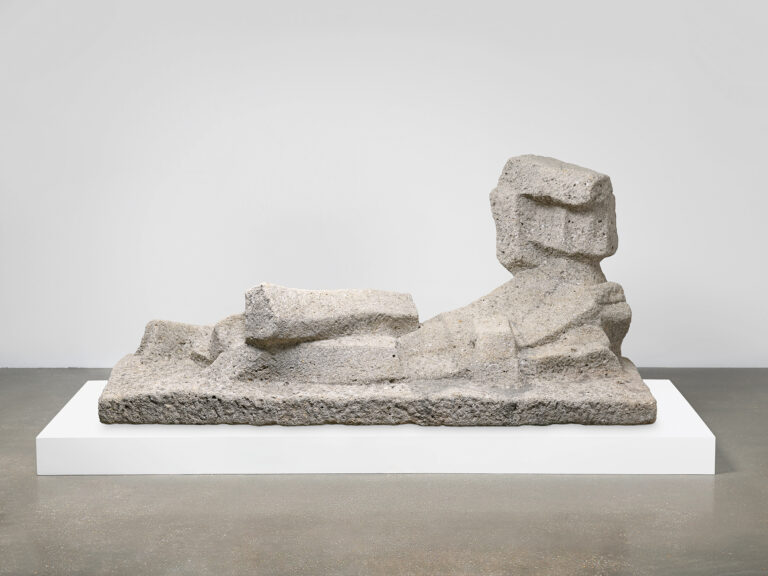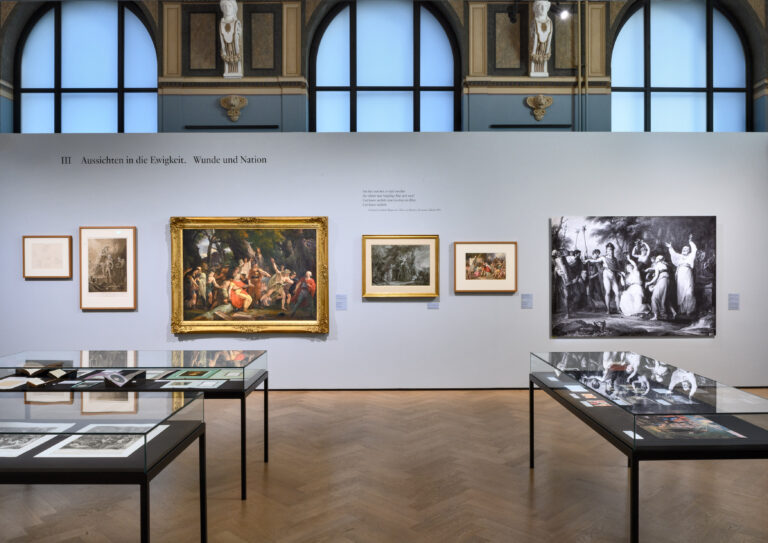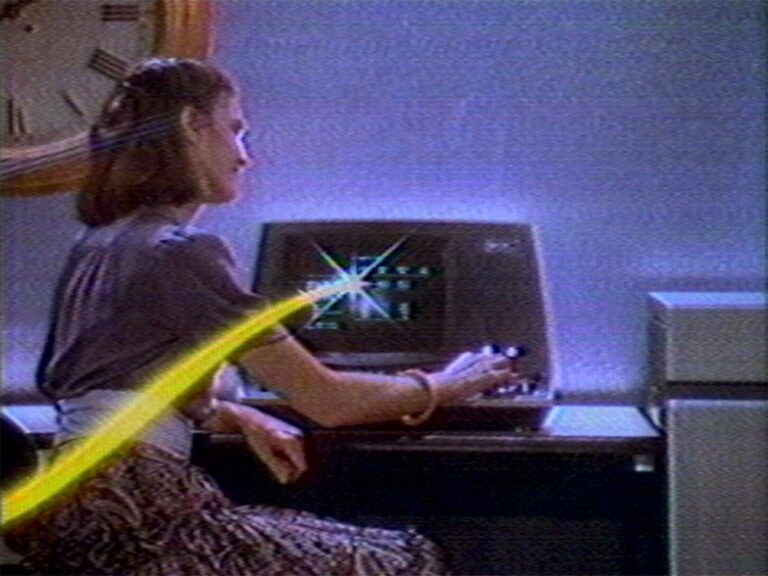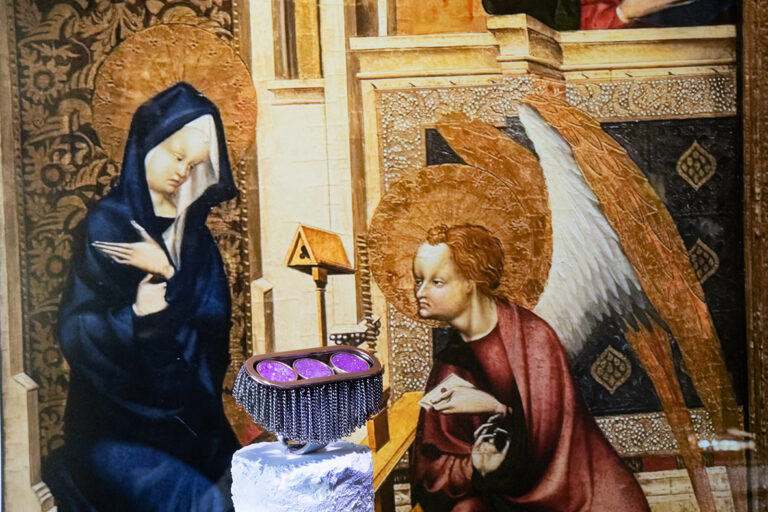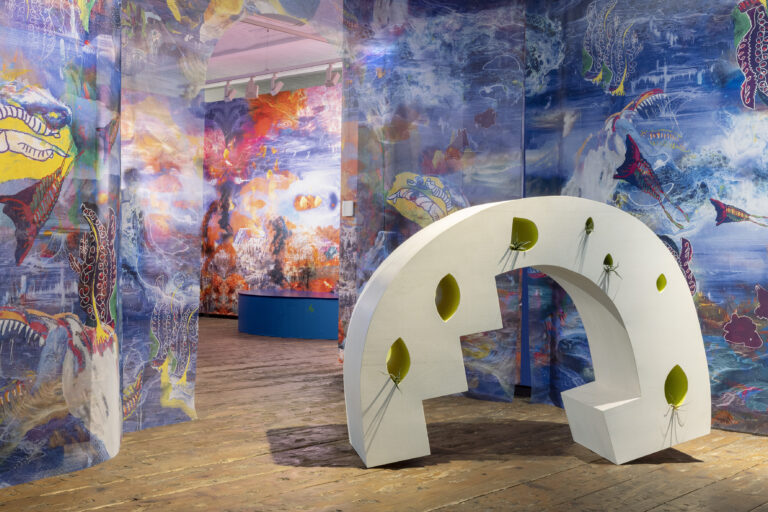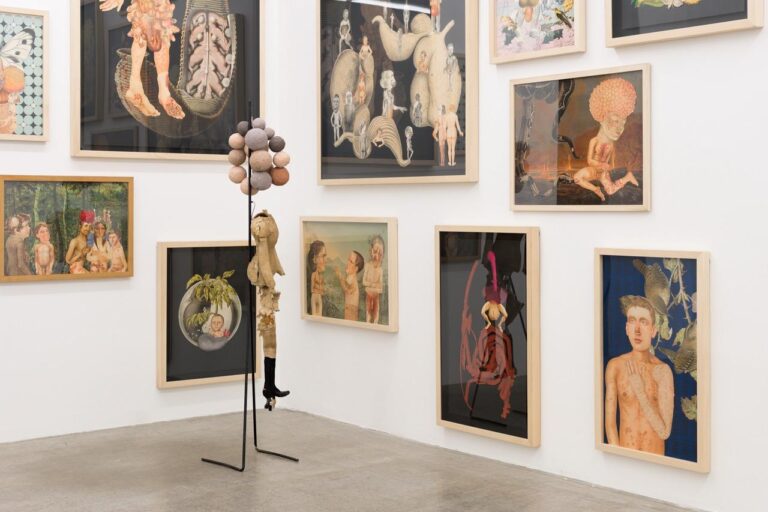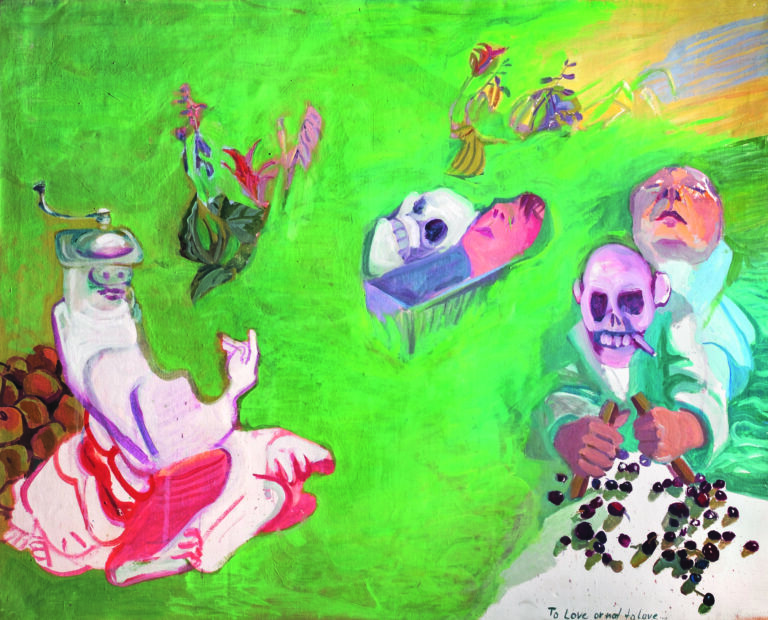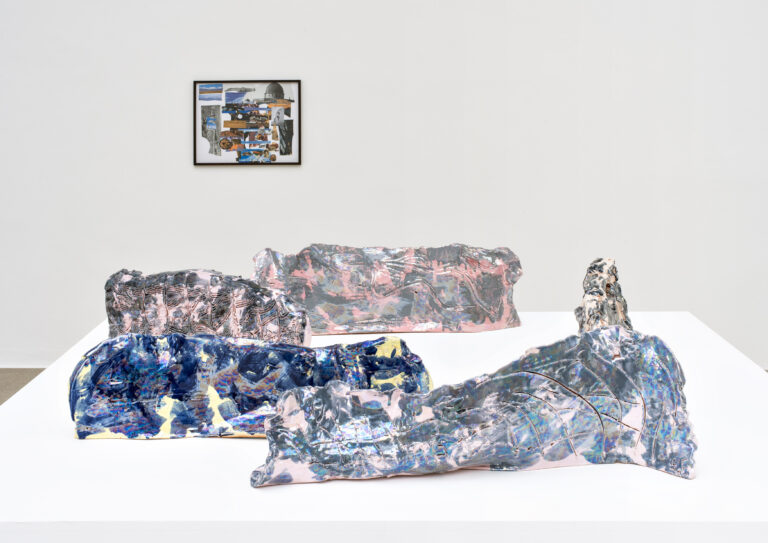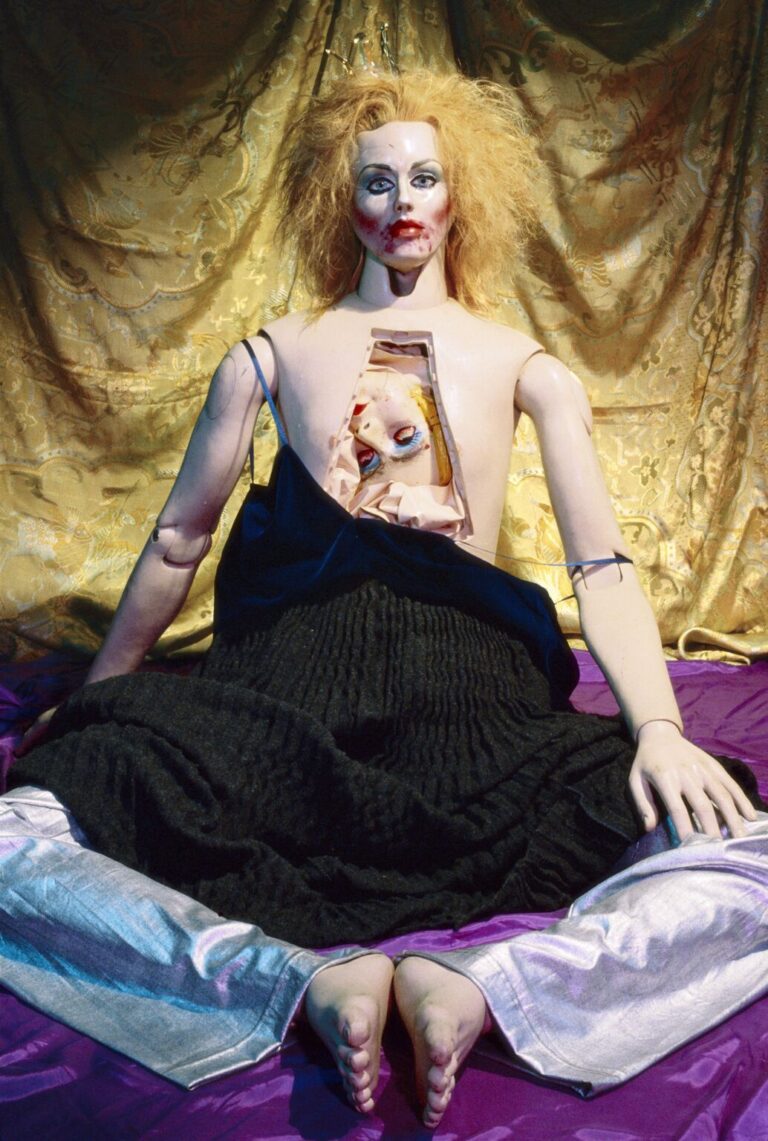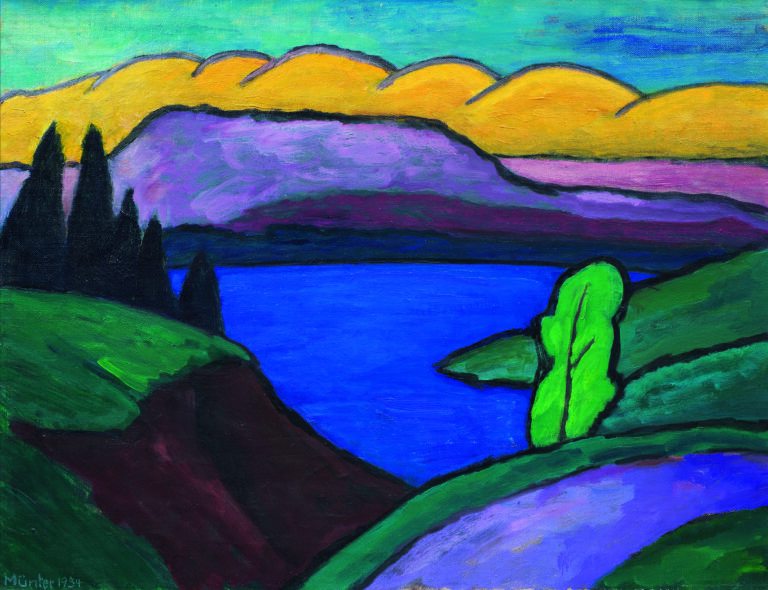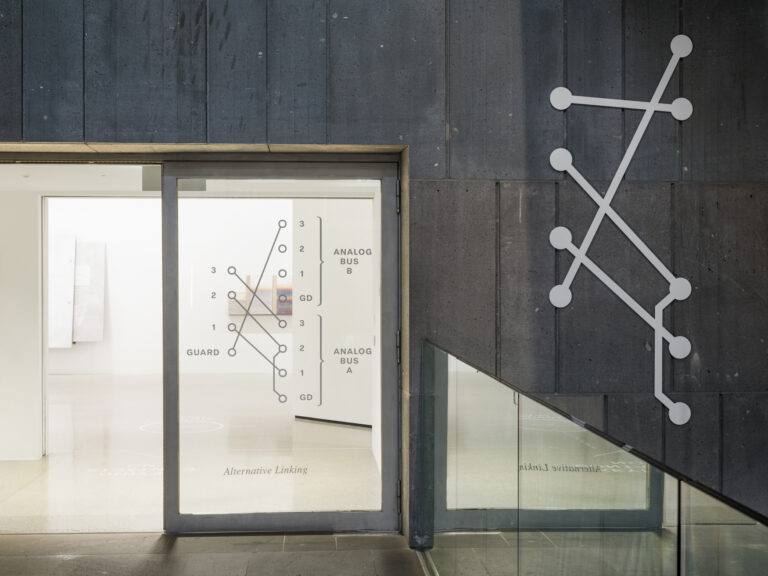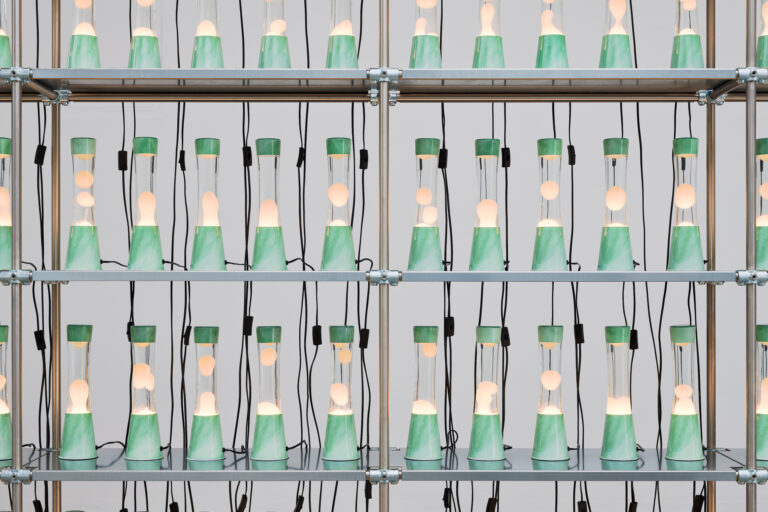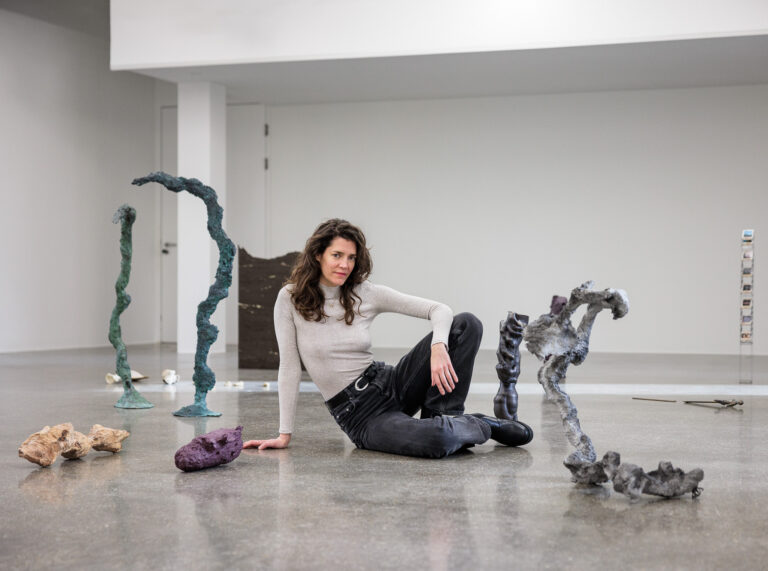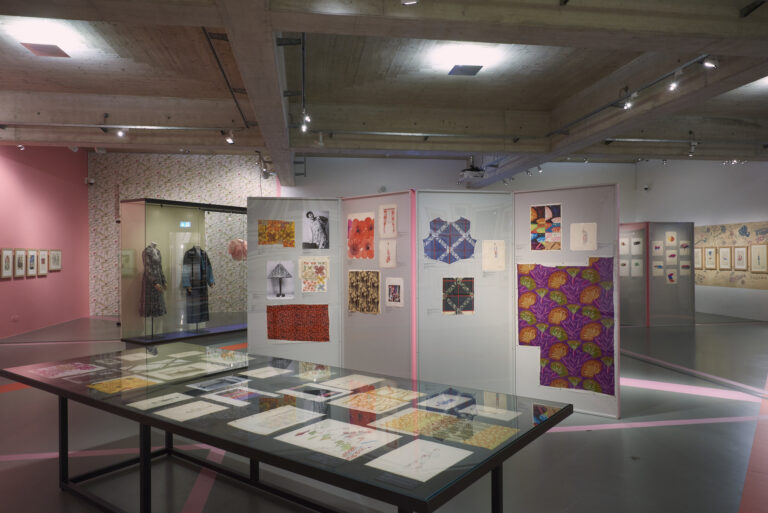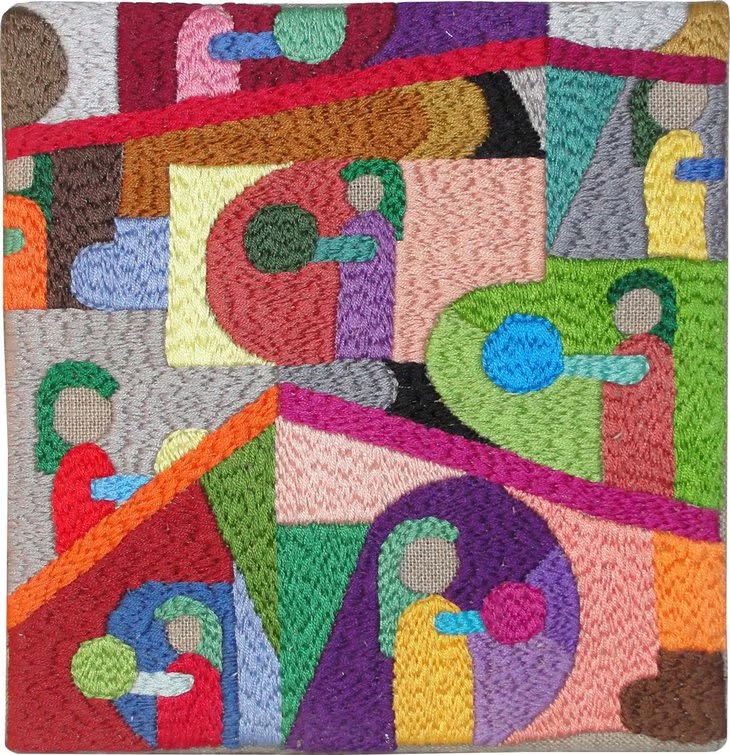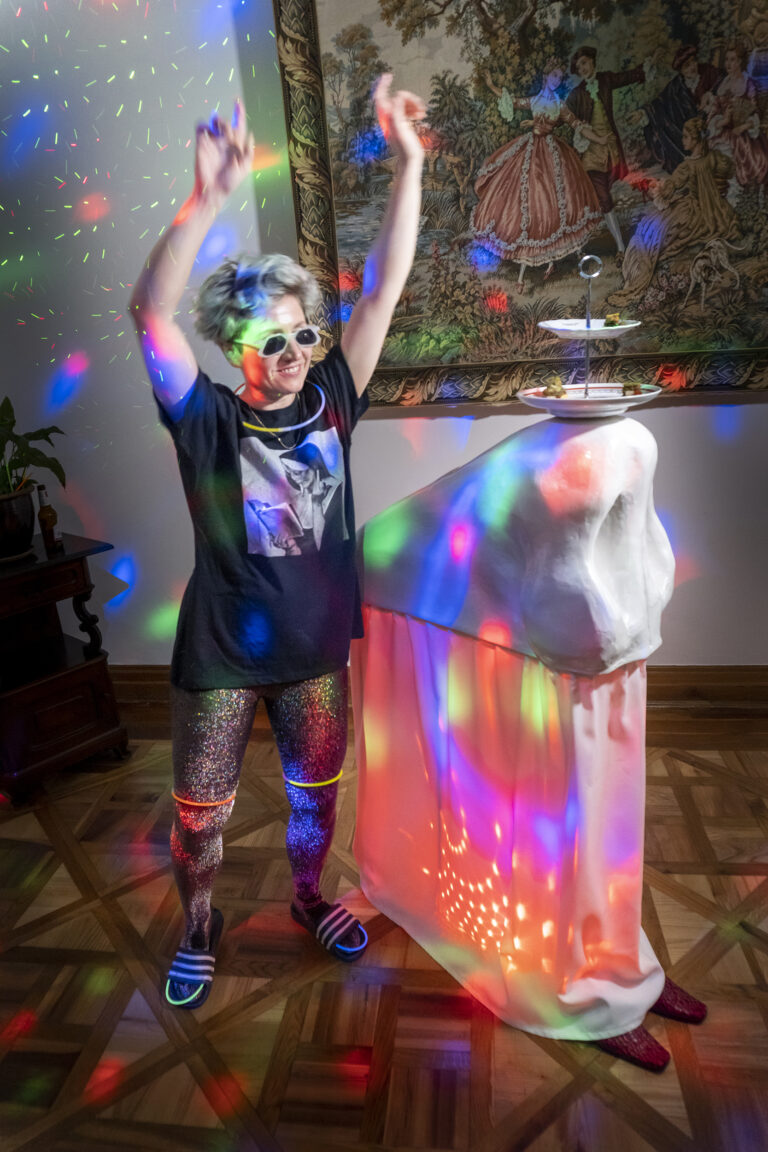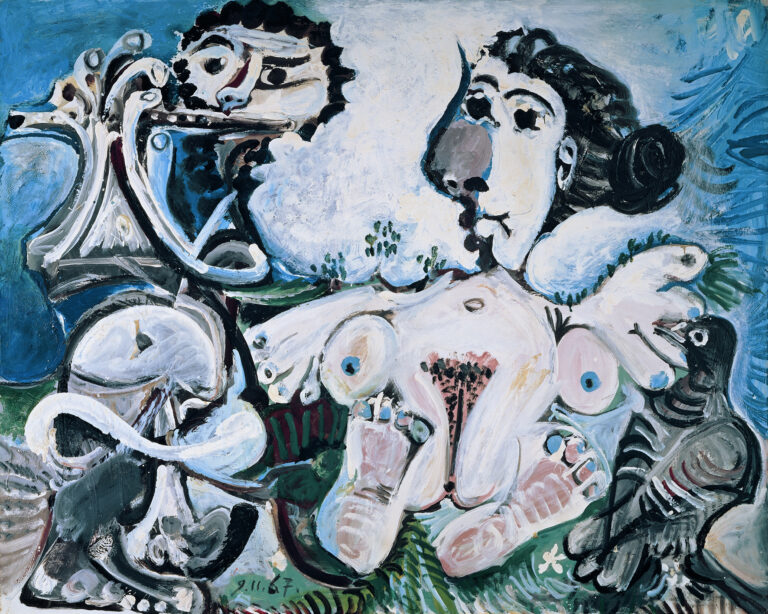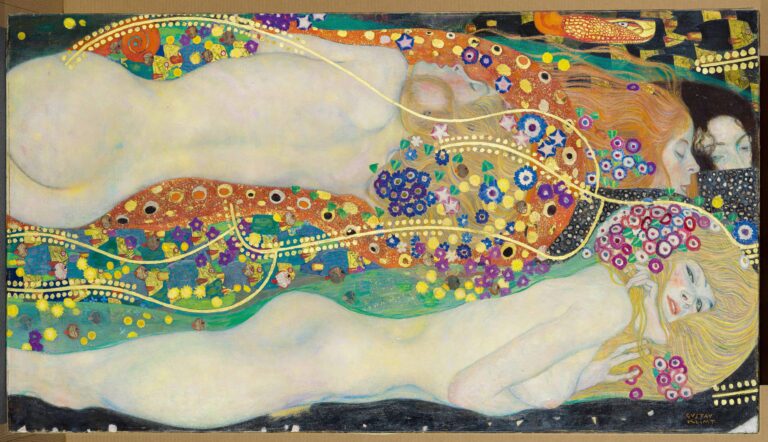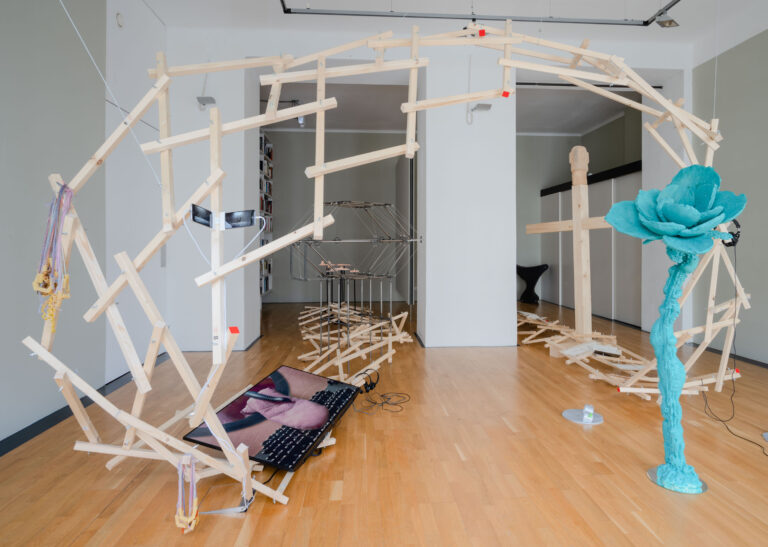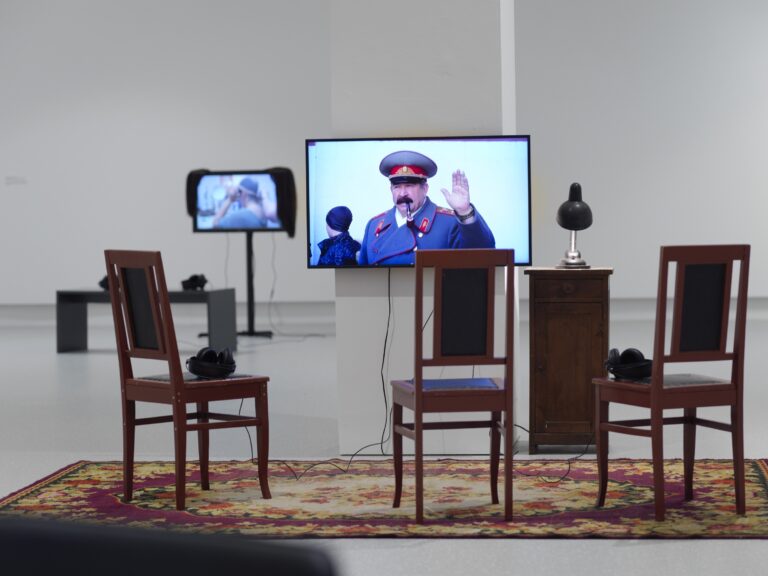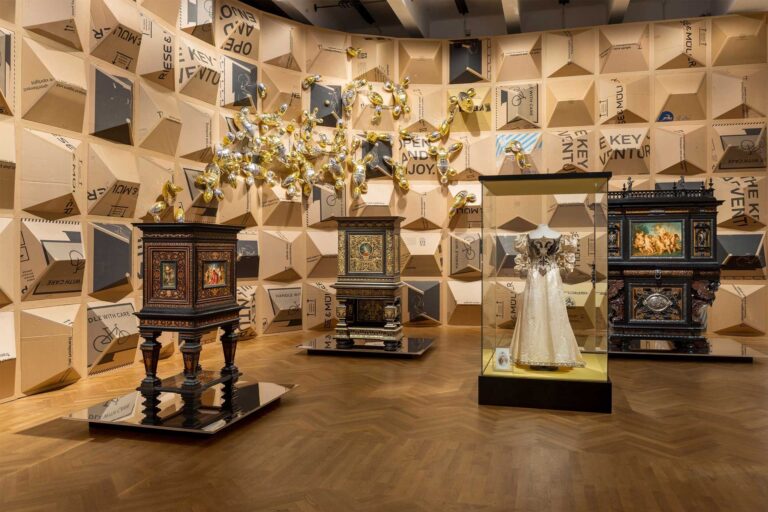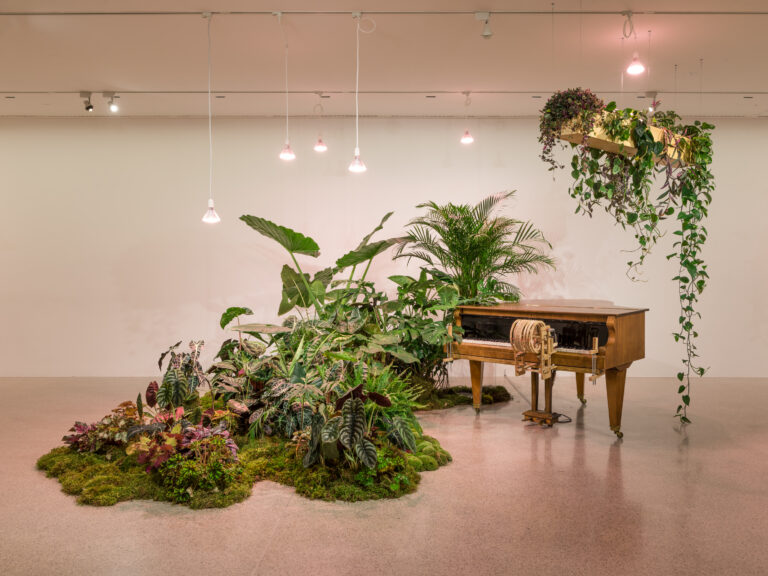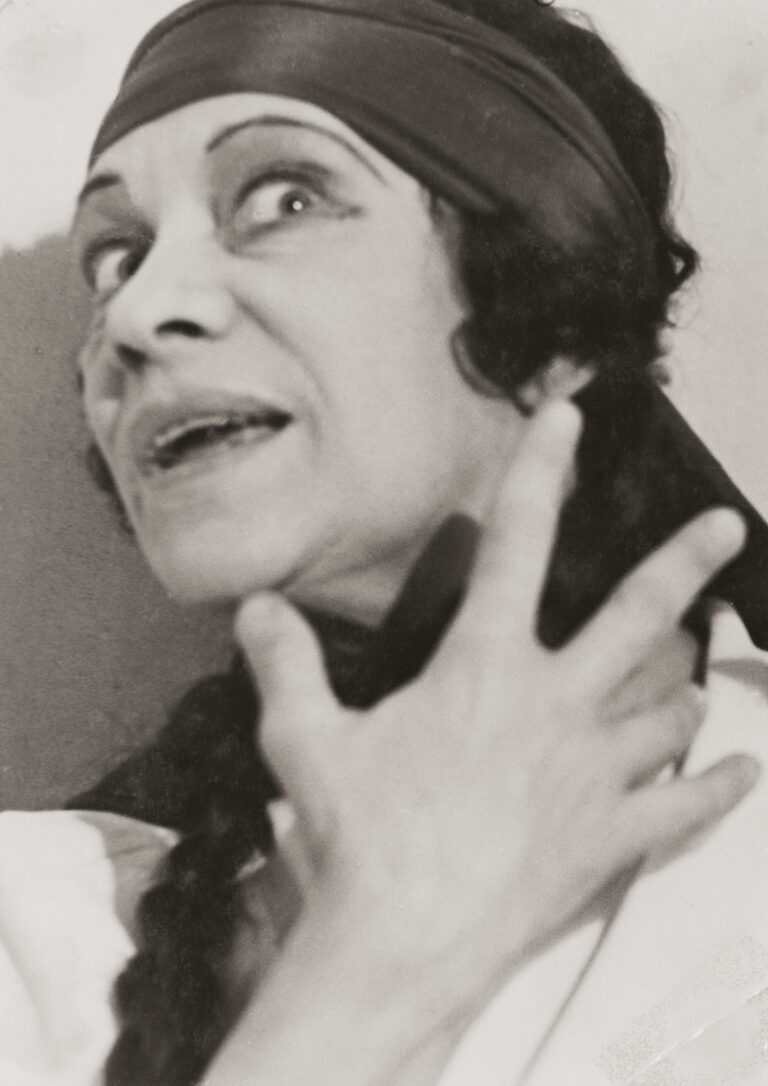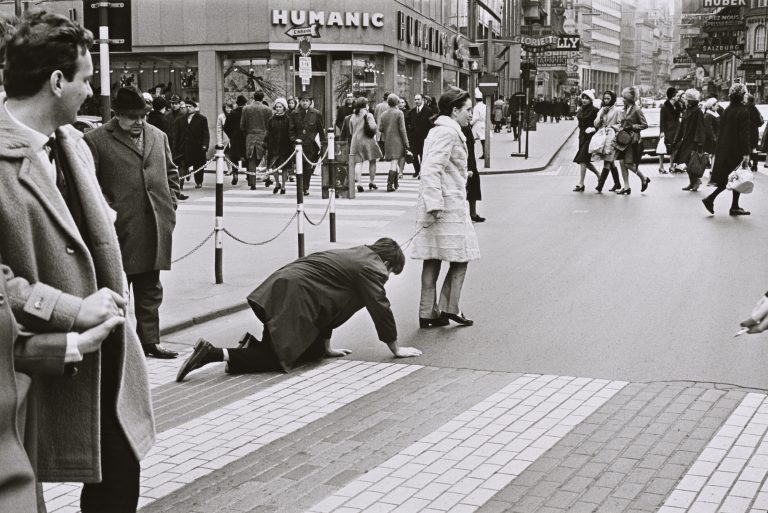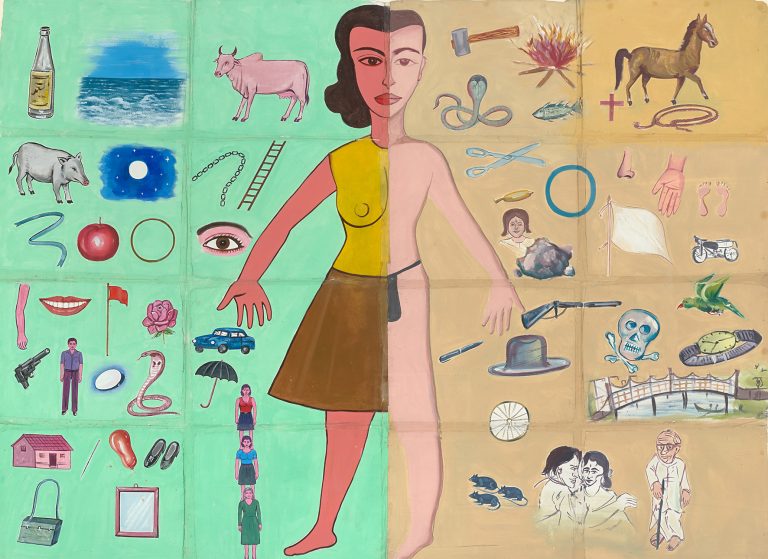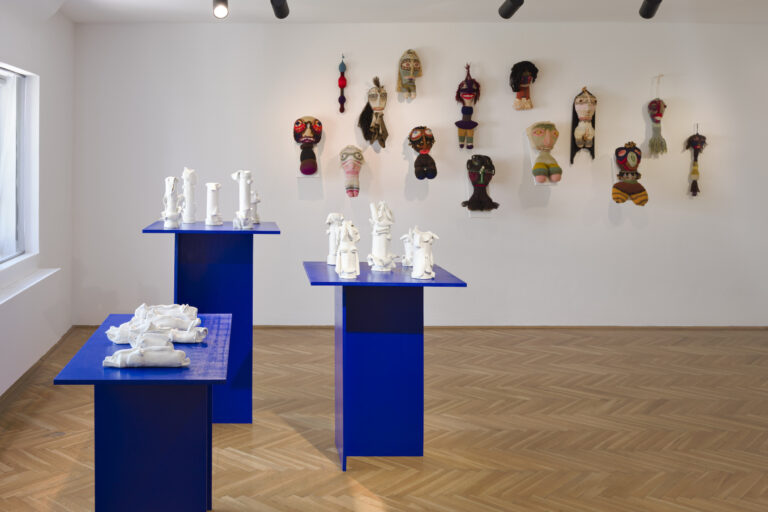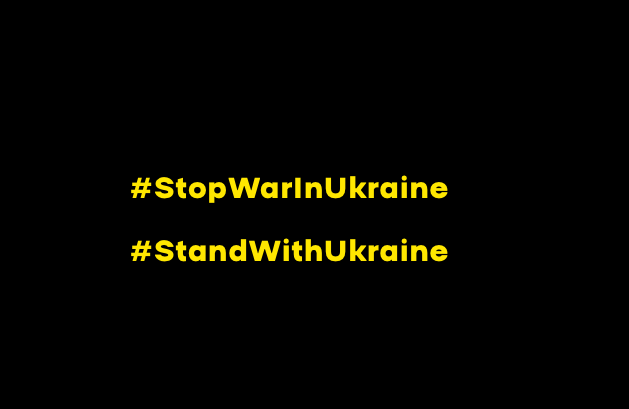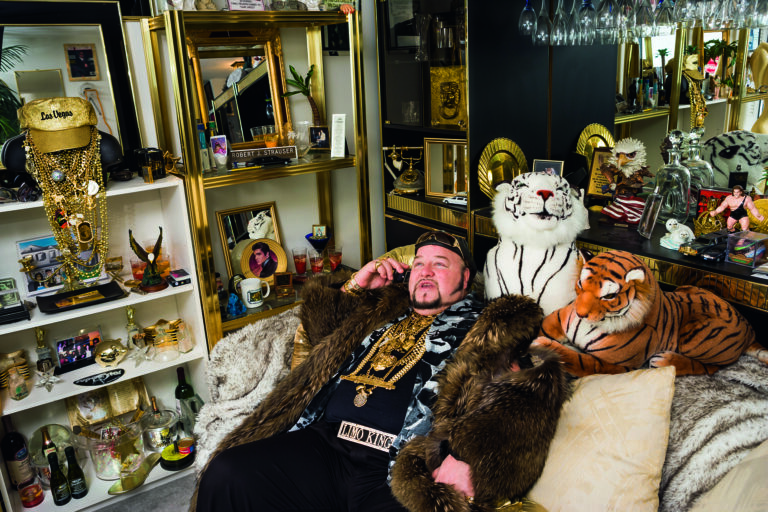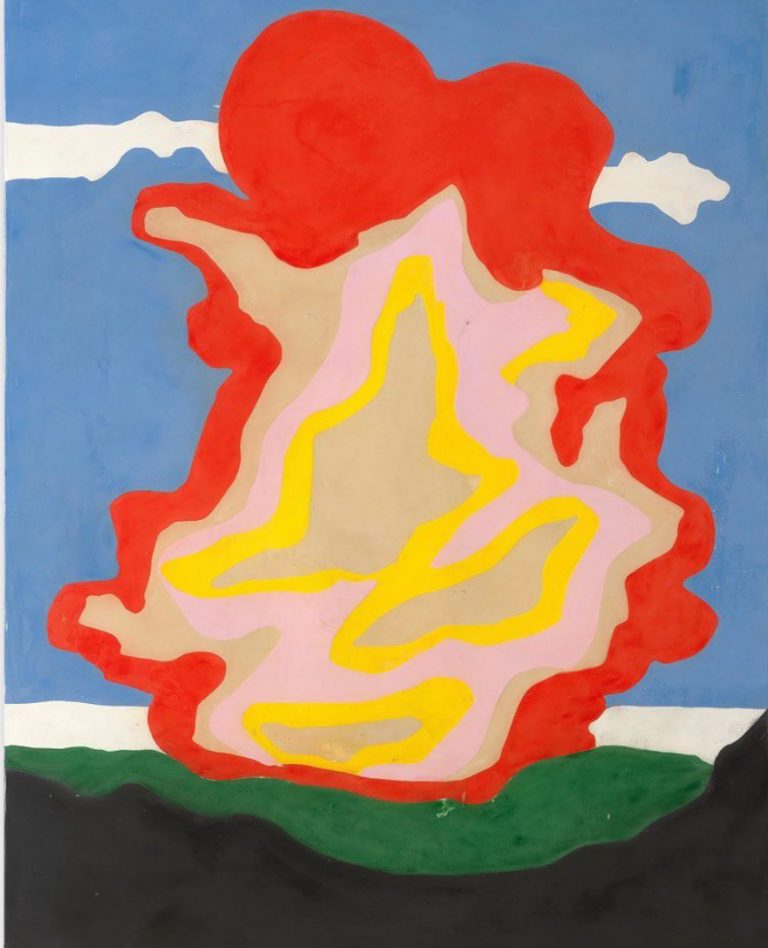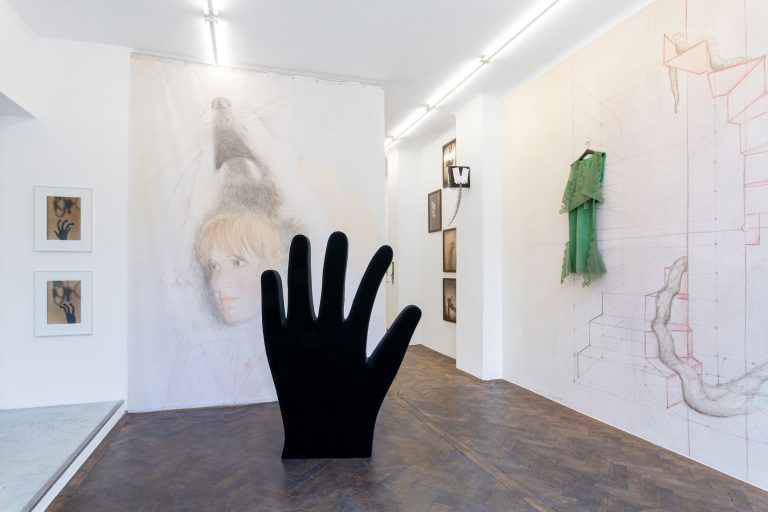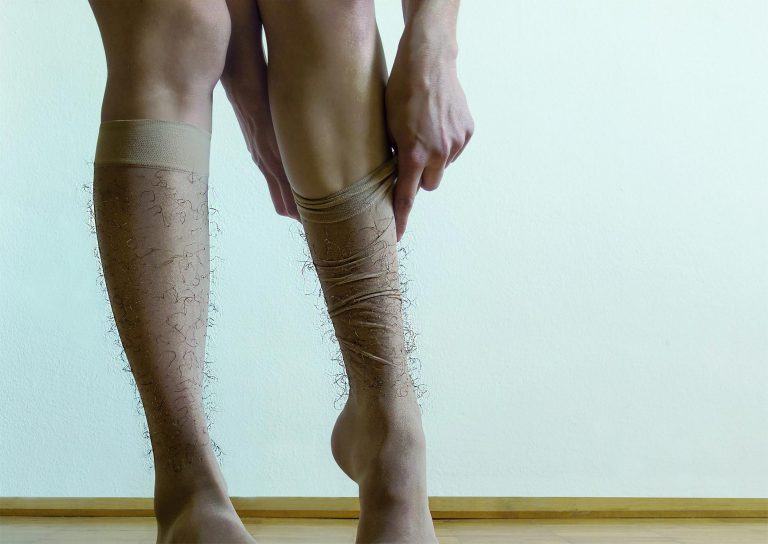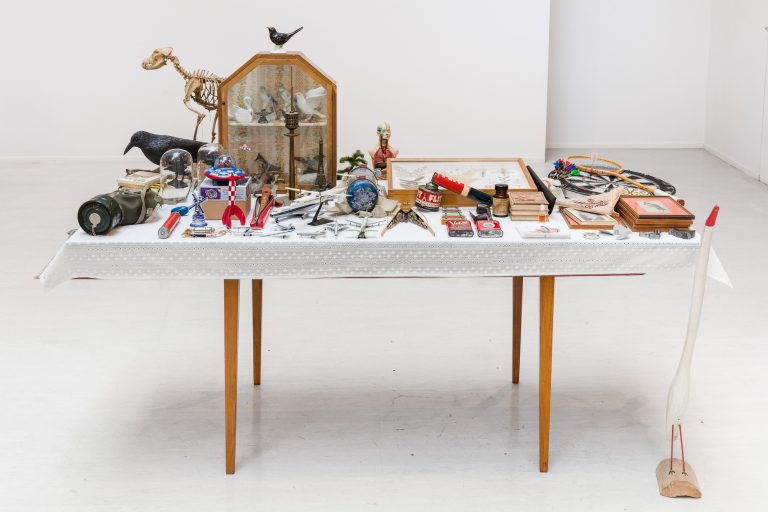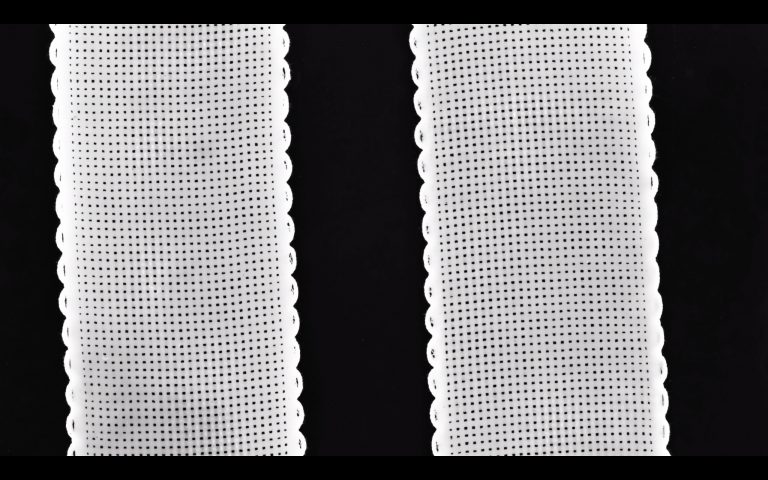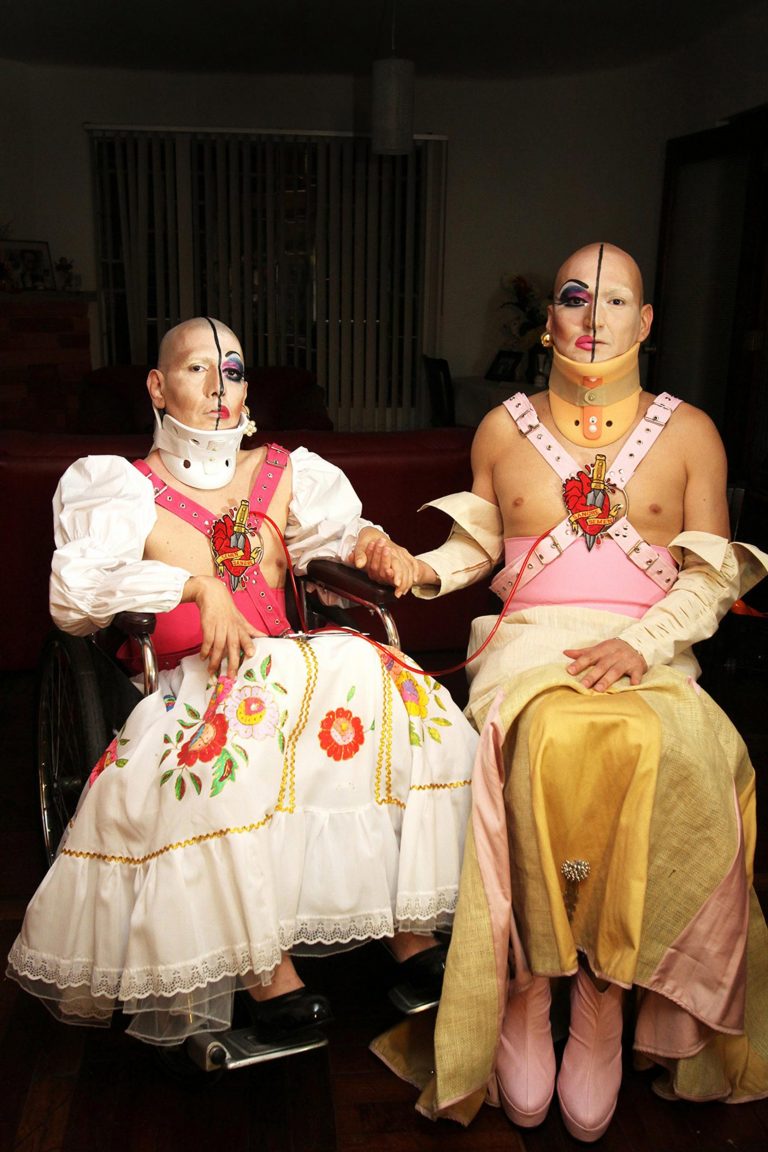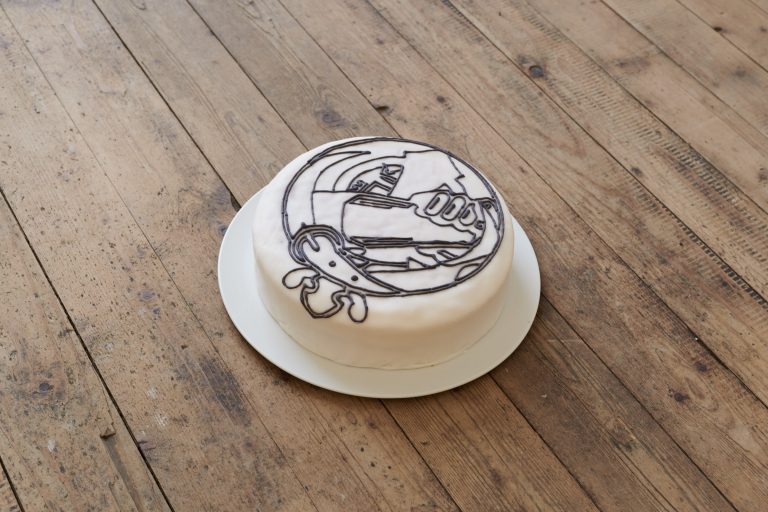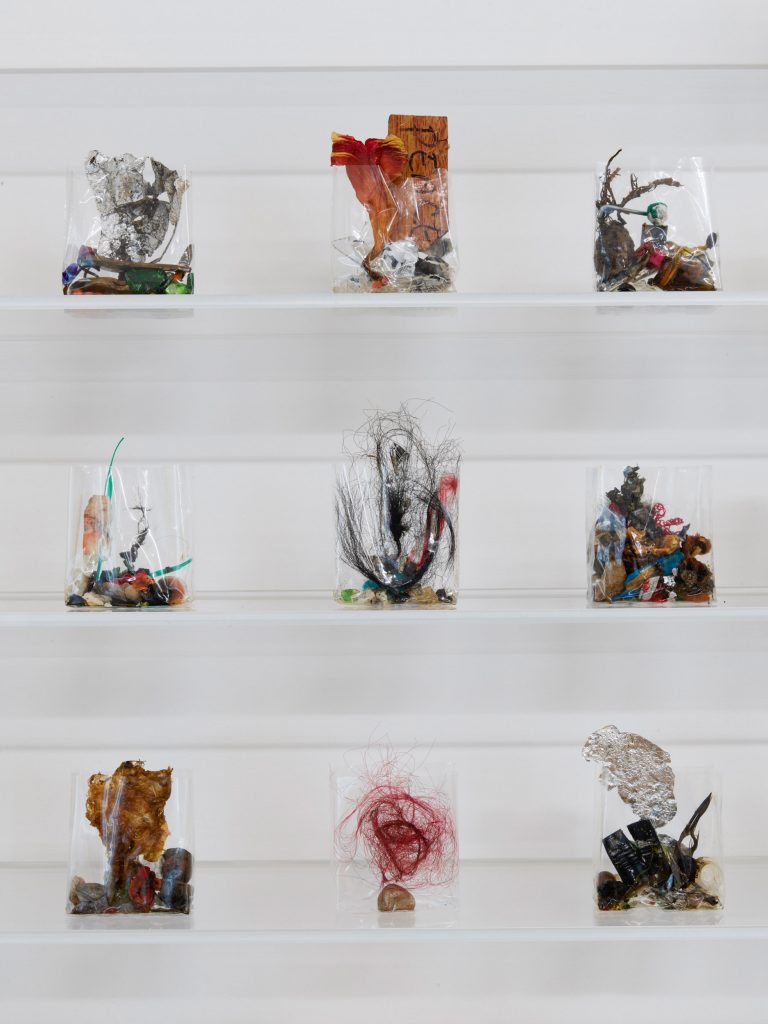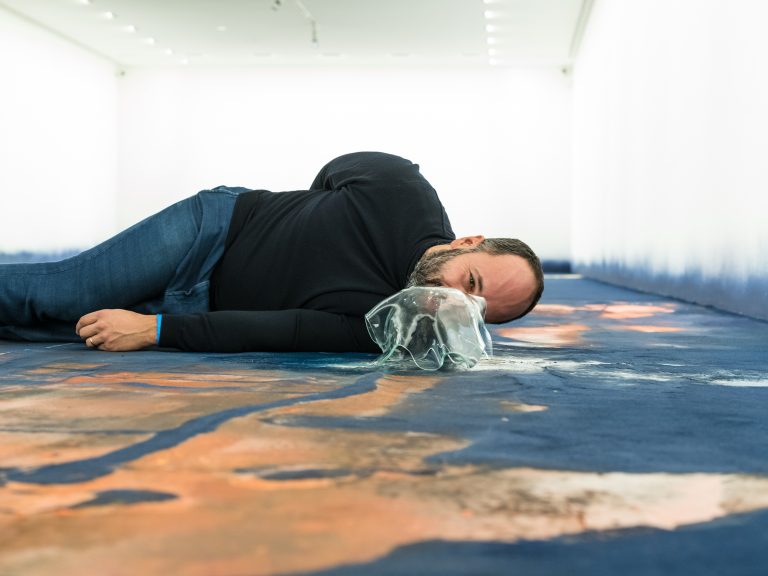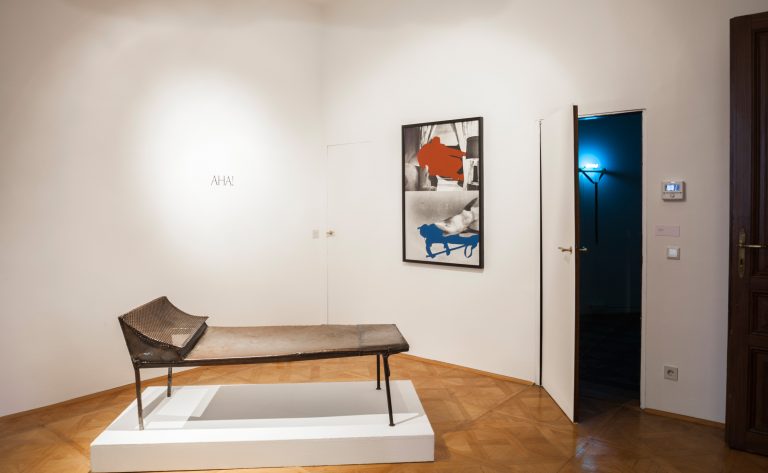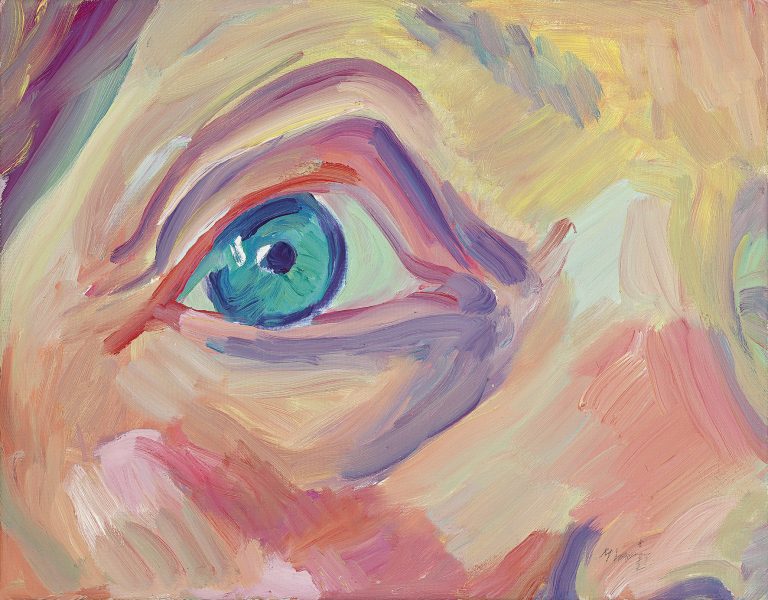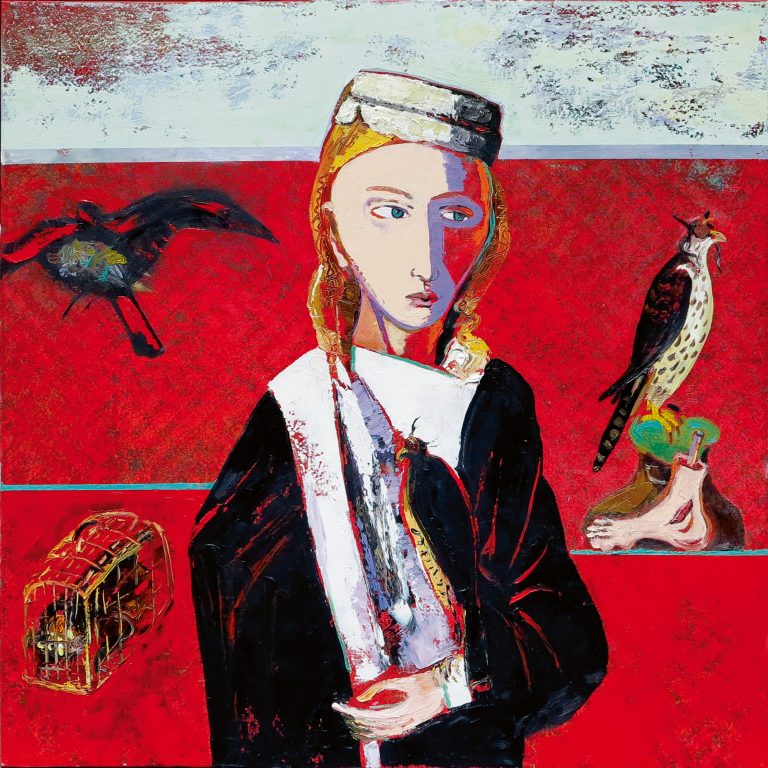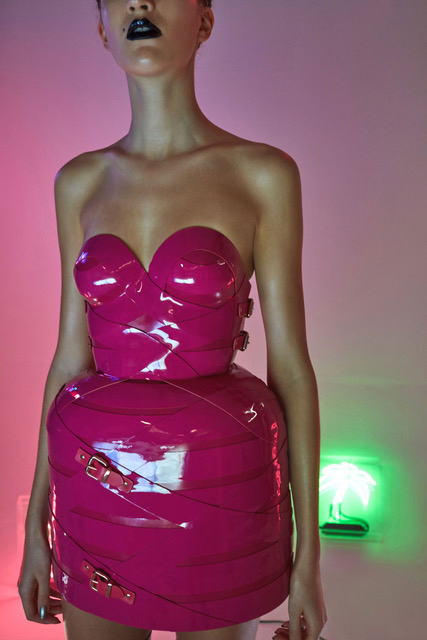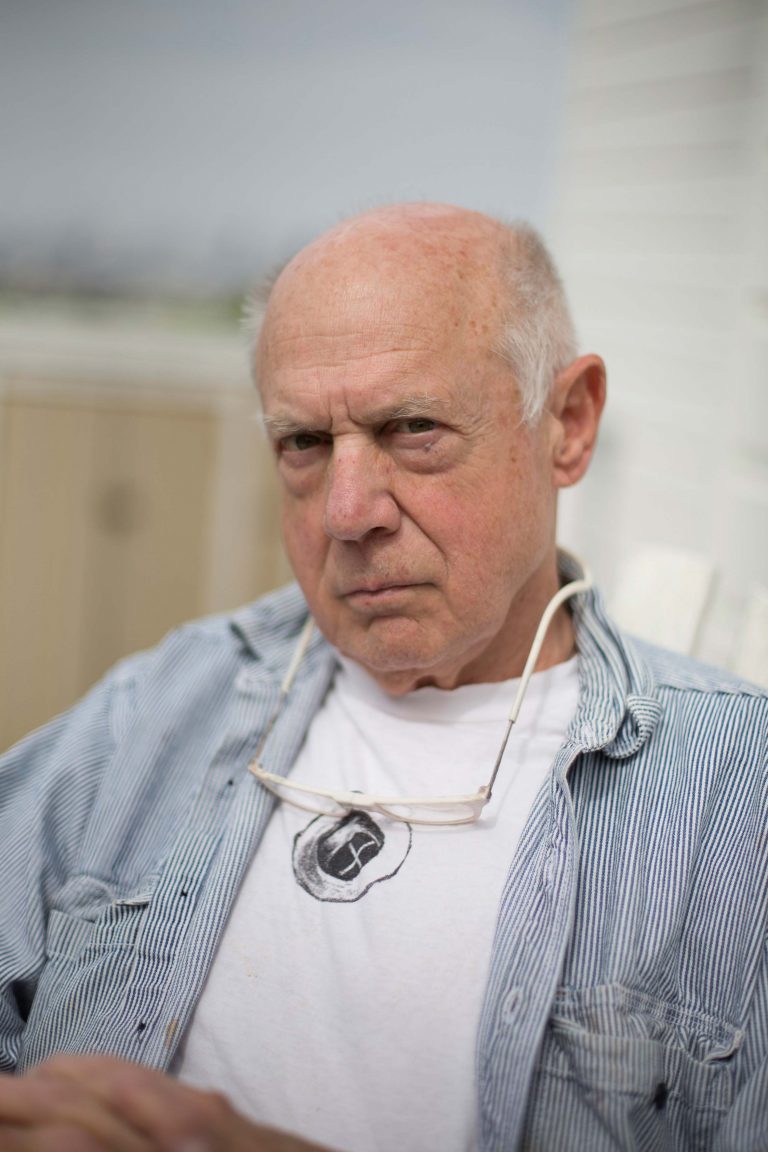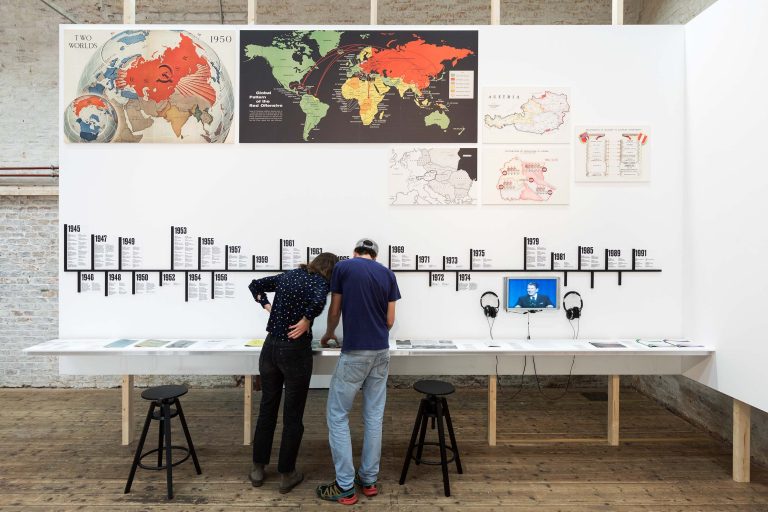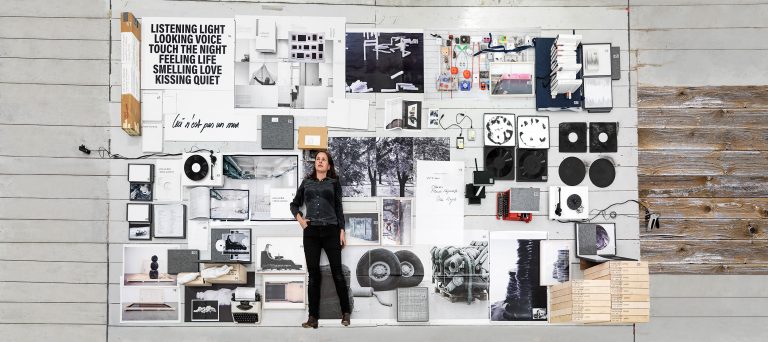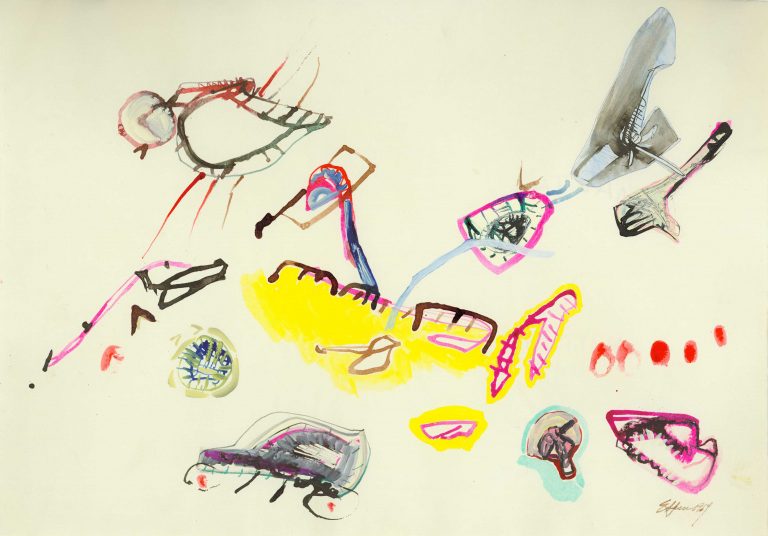Fashion and dystopia
CRITIC'S PICKS FOR VIENNA ART WEEK
Tenant of Culture: Autumn Cloth
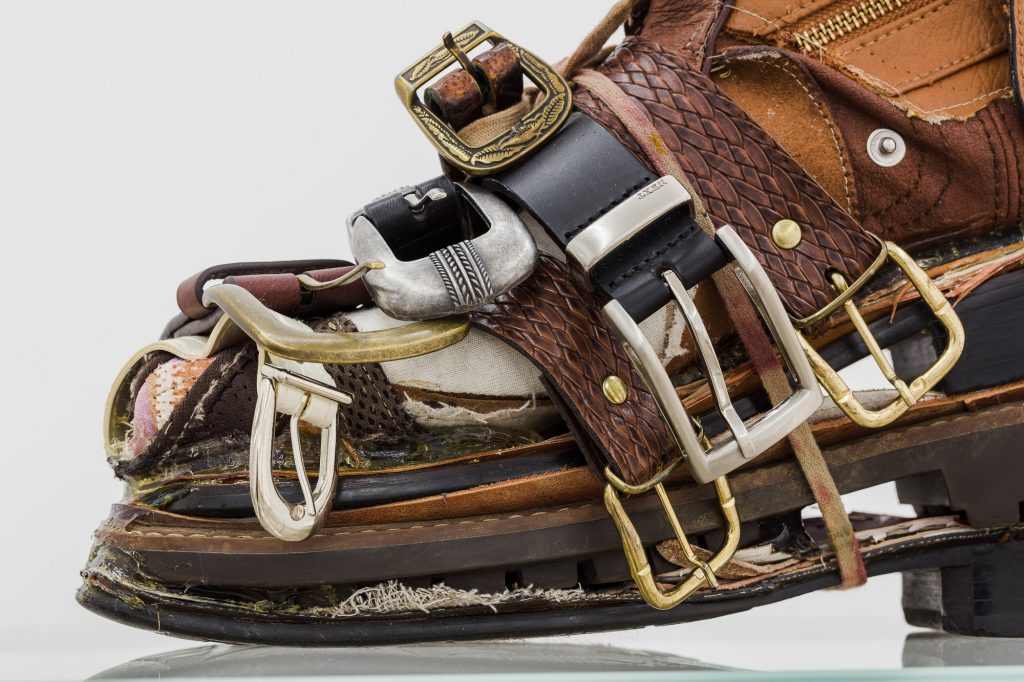
Tenant of Culture, Puzzlecut Boot Brown, 2021, (detail), Photography Kunst-dokumentation.com
Fashion trends are by definition fleeting. So-called “fast fashion” suppliers partly renew their collections within weeks. Joseph Schumpeter would have classified it as a case of “creative destruction”: The fashion world is constantly reinventing itself. The flip side of this process: millions of tonnes of discarded textiles that are shredded or incinerated every year or flood the clothing markets of emerging and developing countries as job lot. In economics, one speaks of so-called “planned obsolescence”: a product comes onto the market with a preset half-life, circulates for a while and finally returns to its place of production and origin as a cheap article or rubbish: to the global periphery.
In her exhibition “Autumn Cloth” at the Sophie Tappeiner Gallery, the Dutch artist Tenant of Culture traces the mental and material consequences of this economy. “Autumn Cloth” brings together a selection of assemblages consisting of, among other things, leather scraps, foam fillings, shoe soles and handbag parts. Attention is focused primarily on the elegant shoe sculptures prominently displayed on stainless steel frames in the gallery’s main space (“Puzzlecut Boots”). The filigree patchwork arrangements (“Swing Tag Series”) on the walls only come into their own when approached more closely. Formally, the presentation oscillates between high-end fashion show and DIY workshop. Associations with other exponents of textile art practices, Sarah Lucas, Isa Genzken, Sergej Jensen and others, arise.
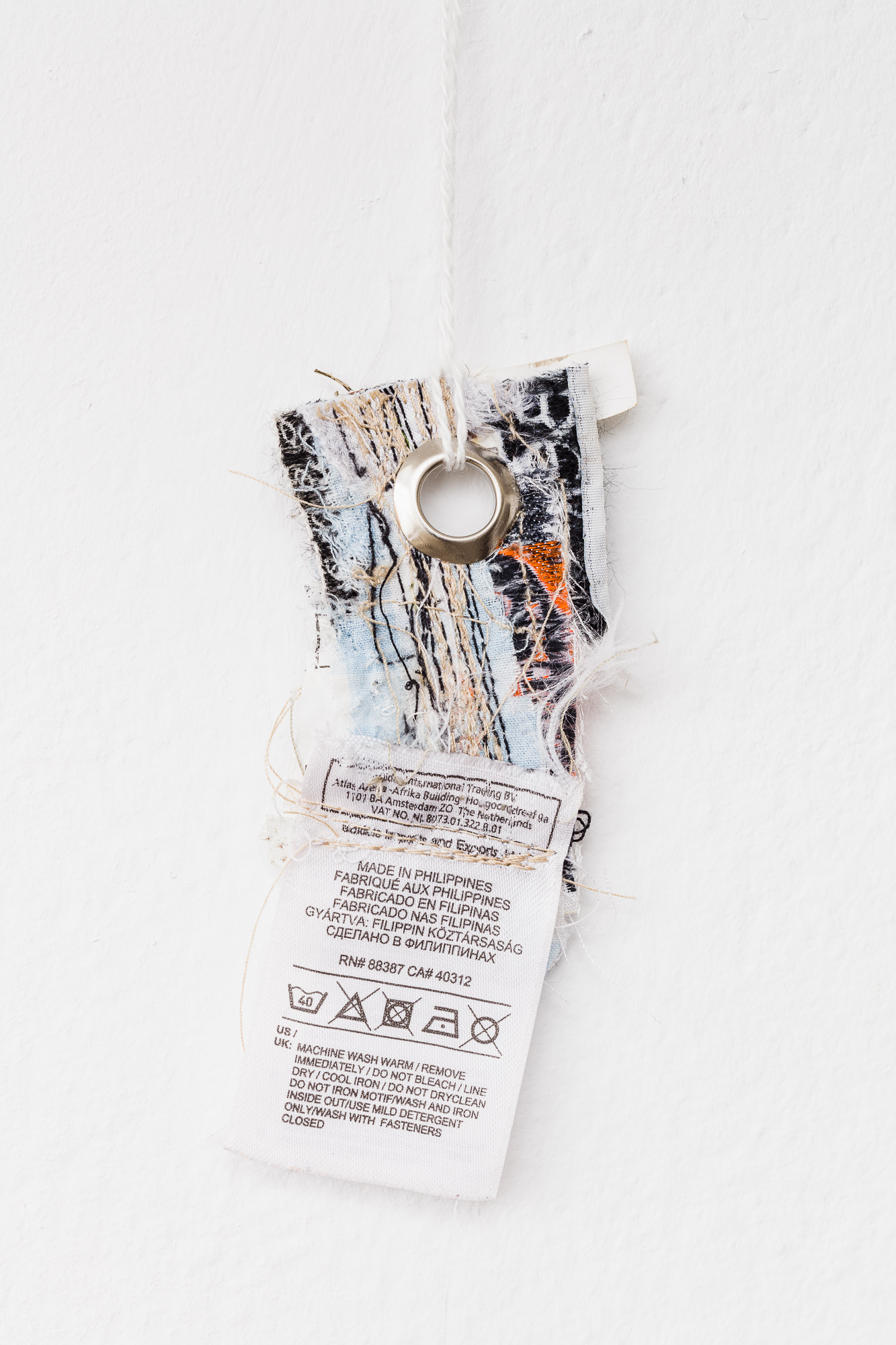
Tenant of Culture, Swing Tag 3 (Series), 2021, recycled labels, eyelet, thread, 12 x 4,5 cm, Photography Kunst-dokumentation.com
In her exhibition “Autumn Cloth” at the Sophie Tappeiner Gallery, the Dutch artist Tenant of Culture traces the mental and material consequences of this economy. “Autumn Cloth” brings together a selection of assemblages consisting of, among other things, leather scraps, foam fillings, shoe soles and handbag parts. Attention is focused primarily on the elegant shoe sculptures prominently displayed on stainless steel frames in the gallery’s main space (“Puzzlecut Boots”). The filigree patchwork arrangements (“Swing Tag Series”) on the walls only come into their own when approached more closely. Formally, the presentation oscillates between high-end fashion show and DIY workshop. Associations with other exponents of textile art practices, Sarah Lucas, Isa Genzken, Sergej Jensen and others, arise.
(Maximilian Steinborn)
